24-year old dude, Sofia, Bulgaria, Into hip-hop, jazz and street fashion. Just putting my thoughts on music here. Also some bulgarian poetry/lyrics I writeIG: lil_sunny__
Don't wanna be here? Send us removal request.
Text
May-Aug 21′ Poetry/Lyrics
Untitled 05 Хората ти казват да я спреш Не виждат ли колко е перфектна Стига опитва ��е, ще умреш Не знаех, че смъртта е прелестна Колко съвестта ми ще тежи Ако в ръцете ми ти не си Какво ще струва до мен да си Дано не са прави, че вредиш Побързай защото вече виждаш, времето тече, а ти не тичаш Няма нужда да го премисляш, то е твое стига да го искаш Колко болка за еуфория Гърдите свиват от умора В главата ти е утопия Забрави, че има уловка Не мислих, че ще липсва толко Продължавам да искам много Хвана ме като е вече сложно Като трудно вече давам
Untitled 04 И не усещам нищо в ядрото, май съм безсърдечен Чак до молекулите е празно, ако ще съм честен Като кажа, че е наред, лъжа те, не вярвай Няма да съм с рогата напред, сдържан съм, не чакай Животът ми е режисиран от Нортън, илюзия Объркан съм като дете от филм на Бъртън, конфузия И всичко, което докосвам превръща се в прах Прерязвам с думи все едно с ръце ножици роден бях От самота загубен в превода съм, ще отида в Япония Ще снимам реклама и ще си оправя живота И от това главоболие ще си тегля вече куршума Всъщност много просто е, на всички правя услуга За другите съм план Б, ще кажеш, че съм хапче Аз обаче не спасявам животите на хора на двайсе Даже на себе си не помагам За другите внимание не отдававам Може би затова и още сам съм Само те използват, търсят просто изкупление Имат време за теб само докато още е от значение Незначителен, удобен за всички, но не и важен Изразителен, сещате се ако няма какво да каже
Само секунда Наливам, докато няма болка, една и съща песен на колонка Обмислям, малко ли е толкова, това ли всъщност ми е животът Ще го правя до последно, готов ли си, готов ли си, до последно? Треперя, не е лесно, признание, ако в Инста те търсят често Всичко на моите рамене, светът е кръгъл и неудобен е Нищо не ��ога от безсъние, като не гледам виждам безличните Нова мацка, давам й до безумие, тя ми казва обичам те Няма емоция, дълго мълчание, поредна лъжа, разкарай се Самота от 16, правих се на луд но съм тук Наиграх се с глупости, не ме определя никой друг Вече съм чук, вече търся нещо, но все още търся какво Мечти за плоча в клуб Перо, изморен търча, но защо Посетих го на края му, на душата му молбата чух Нямам мир, имам задух, толкова пиян, че нямам слух Чувам само празен звук, дай усмивка за клуба Влезнах едва за секунда, тръгнах си с целувка, ха
Лято Толкова ми е добре Дай ми още едно със лед Понякога то ми лафи И понякога му лафя и аз, Понякога.. не не, няма
Казвай, копеле изчезвам Копеле, като Раул се чувствам Краен, лазещ, търсещ светлината Намиращ пещерата Кажи ми, че съм като Дженкинс Че съм свеж и пресен, готин Дарба, с думите злощастна Философстване не надраснах
Слънце, заедно бяхме Джази Заедно бяхме Бел, тръпки Все се омайвах, май се урочасах, Всичко със причина Синдерела, как ли ме остави? Не бяхме ли до края? Деба, животът ме обърква Аз ще го поправя, вярвай
Знаеш, че ми е добре Дай ми още едно със лед Понякога то ми лафи И понякога му лафя, ха Понякога.. ъммм Виж
Специален, Яхуе ме обича, А Буда ми прощава Тук съм на всички да разкажа Какво Големият ми показа Малка нимфа от морето Тръгна и ми взе сърцето, празно Колко пък още да се моля Точно аз не вярвам в Бога, Дали Раят не е безплатен Билетът ми не е златен
Слънце, заедно бяхме Джази Заедно бяхме Бел, тръпки Все се омайвах, май се урочасах, Всичко със причина Синдерела, как ли ме остави? Не бяхме ли до края? Деба, Животът ме обърква Аз ще го поправя, вярвай
Знаеш, че ми е добре Дай ми още едно със лед Понякога то ми лафи И понякога му лафя, ха Понякога.. ъммм
В какво да вярвам Защо живеем в лъжа? Погледни ме и кажи „не е така“ И защо се правим на деца? Нима ще кажеш, че греша Ммм, с поглед само се разбираме Защо трябва емоции да подбираме Всичко е на база неуважение Но око в око се правим, че няма значение? Не ви ли писва, виждам само лоши погледи Докога ще се правим на светци Имам истории, но кой иска да разбере За пореден тип, който мисли за въже Разказвачът слага пороци на пиедестал Без да покаже, че себе си е жертвал Често ми казват „В миналото си грешал Това е моментът ти, не бъди провал“ Нещата винаги обаче до това опират, че никой за демоните си не комуникира Моля се там отгоре да спра да се проклинам, двайсет и пет да успея да достигна
Питам от години „Къде е любовта?“ Няма отговор, само ми дават пара Не говорим за травмите си като деца От малък се крия в моята глава И майка ми не спира да се притеснява Че черна дупка отвътре ме изяжда Истории за безкрая разказвам С думите за паднали ангели натоварвам Как се обяснява какво е да се бориш със самота И че за утре нямаш яснота Всеки ден се крия в работa Помогни, понякога имам нужда от малко насока И напоследък вече губя си ума Давам размисъл над всяка идея безумна И защо ми се обажда само като има нужда? Какво всъщност вече си струва?
Виж, пия прекалено често, проблемните навици на девет седем Визия, че ще си тръгна рано общо взето, затова ли съм комплексен Обясняващ, че не търся кучка, но погледа винаги насочен към тях Не съм известен с това, че слушам, но сякаш три живота преживях Знам разни пичове, които се правят на мъдри Само в думите са първи Направени от полиестер и шушляк Модерни и будни, но хъркат Нямате нищо освен мечти Но на лично обичате да давате съвети? Винаги казващи, че редя много Зад гърба ми често кълнещи Някакви хора си мислят, че ми пука за нещата, за които им пука Не казват нищо адекватно, спри да обясняваш, умирам от скука Без повече неща казани за внимание Писва ми от това негативно влияние Без повече неща казани за внимание Писва ми от това негативно влияние
Бегай От малък само майка ми вярваше За моята дарба само тя на хората казваше Преди всяка кучка искаща пачка и Преди поредния лайнар очакващ награда (чек чек) Преди всички путки, играещи си с нашите чувства Следвай ѝ устните, играе си с думите, дали пък ѝ пука Вярвай ми, момчето го прави В живота заварчик е, създавал е сплави, ще го поправи Аз съм непобедим, викай ми Адесаня Просто не грешим, телец, не пипай рогата Не съм на Земята, ще ме намериш на Марс Ще те мина с метлата като недоизпушен фас (свивай) При звука на моя глас, вечно си плах (тегав) Обясни пак, мънкаш, нищо не разбрах (тегав) Аз се опитвам да съм кат Боро – да мога да черпя доволно Брат, имам, само виж колко Изливам си душата на листите, не се съмнявай в мислите От чаши бъркащ си римите, вечер не съм сред живите Знаеш ли на кого въпроси си задавал? Как ще си прав, прост си, аз съм ти даскал Момче, всички твои грешки аз съм задрасквал Дължиш ми успехите, за които си чакал
2 notes
·
View notes
Text
November-April Writing/Lyrics
Аз съм аз
Заклещен между Ада и Рая, откога опитващ се път да си прoправя Някога виждам ли му края или с нежни думи се опитвам да омая Объркан аз увъртам, никога мисълта си изцяло не довършвам От страх да се побъркам, или от устата ми нещо грешно да изхвърлям Всички притеснявам, на демони се давам и на всеки му прощавам Истории разказвам и на себе си показвам - от войната се отказвам Успокоение, тя знае, че искам успокоение За да го получа трябва от нейното отношение да получа одобрение за изкупление Импулсивен и първичен, прекалено циничен и излишно лиричен С рогата напред и винаги изричен, на всеки ясно колко хаотичен С въпроси към себе дали съм ироничен или просто неприличен В главата ми е положение критичен Глас, с който младите се свързват, нашите думи не трябва да пропускат Дори ако грешните нападнати се почувстват, в себе си те допускат Все пак сме съседи, аз съм Луци ти си Рая, между нас се атакуват Разказвам история за безкрая с Бог да те противопоставя ... Г-н Исус ще ми спасиш ли живота?
-----
Гоненица
Често имам проблеми, които за решение не са лесни С нови спомени искам да лекувам белези винаги пресни Като ходя само се спъвам, сам се вдигам, другите придържам Май не съм добра опора, щом натиск не издържам Като детски филми си напомням за едно време За стари грешки се чудим, бягам от носталгия – от нея ревеме В себе си всеки носи бреме, моето като разтоваря дере ме Когато паднеш кой ще те поеме? Съдбата ни дебне Колко пъти трябва да повтарям, стига толко Никога не искам да е просто, имам мисли в главата прекалено много Мислех, че само леопардът спи сам, вече виждам, сам си писвам Срам, ме е, че не се вписвам, на кого ли липсвам Не ти ли писна да играем на Том и Джери, не съм котка Не си плъх, няма да те гоня, всичко винаги завършва с болка Самотата над��ли е толкова лоша, щом и сам намирам разкоша На живота, в който искам да се успокоя и затопля
-----
Въпроси за живота на 3 коняка
Сипвам и отпивам, мислите си заливам С коняк и лайм прикривам собствения си драматизъм Карам я напред, сипи ми го малко и с лед Ако изчезна някой ден знам, че всичко ще е наред Телефона в ръцете докато треперят, Паркинсън Фреди Крюгър, дали пък кошмарът не е просто сън Що за проблеми има един real G Не знам, не мога да кажа, не отговарям на тези термини Загубен в ума си, мисловен процес, мозъчен вортекс Дали всичко пък не е просто комплекс Експлоатация на собствените ми мисли Дали пък не съм аз виновен, че никога не са чисти
-----
Нрав
Да, бодеш ме като трън от роза Нямам вече от счупване болка Каквото и да си казвала, аз мога За думите ти не искам прошка Не ме питай на какво принадлежим Не съм тук за да се чудим Чрез безгрижие всички ще се спасим В излишни мисли често се губим Можеш да се луташ в гората и да се радваш на живота Докато не се убодеш на тръна от онази роза, хм, мотив Сещам се наново, толкова отровно, сякаш е повторно Но прекалено ми харесва тук и сега Не знам за какво става дума Прекалено много ми изскача на ума (Няма връзка) Логиката губя, ще ви кажа, ако представа просъществува Да, знам, че Трябва да си гледам нрава, затова и Не залагам, че ще сме двама, но аз Намирам начин често да сияе Мостът е дълъг, дано за мене здрав е Еми, Свиря, докато не ми се изтърка перцето Поливам, докато не изникне дръвчето Давам, докато не ми е празно сърцето Не знам какво е нормално за момчето Затова готвя на око, няма рецепта наоколо Сам измервам, дано е здравословно Сипвам по колкото преценя (По-малко) Няма кой да ми каже как да се справя И Дяволът е бил човек От малък намирам начин да ми е наред Прочиствам мисли с всеки куплет Кой иска да направим дует Не ме изпускай от погледа си Знаеш, че нещо голямо предстои Никога не предавам себе си Дано не падна в твоите очи Защото
В себе си често губя вяра, затова и Не залагам, че ще сме двама, но аз Намирам начин често да сияе Мостът е дълъг, дано за мене здрав е
-----
Без име
Прекарвам си нощите в това да къркам, защото съм объркан Дано не съм побъркан, че путката ме нарече сбъркан Ако почна да ��мъркам, то това е доказателство Че в този град няма как да не си направиш посегателство Само без нахалство на тези счупени улици Не се занимавам с дребни душици за да няма убити Разбираш ли без субтитри, че ще ти направя рана Май не схвана, явно ще ти обясня чрез промяна С тупаници и ритници, влизам ти в очите обождайки ги с вилици Аз съм от племе столетни хищници, имащи изблици на агресия За никой не е трагедия, че след тази случка ще имаш амнезия Без резки движения, защото иначе смъртта ти за всички ще е мистерия Дано разбра тази концепция, не те заплашвам Казвам ти истината, какво ще стане загатвам Мрачните мисли затапвам, прекалено дълго Млад Хънтър Томпсън, ще ме запомните като е късно Пич без име, yeah Пич без име Пич без име Аз съм пич без име
-----
Вече не знам
Тя винаги прави каквото си иска И никога не спира да ми липсва Дразни всеки подрееед Всеки с нея иска рееед С нея никога не съм черноглед Защото на деня ми е акцент Винаги открадвам момент Кара ми се с онзи неин поглед “Спри да пиеш, не си ти” Казвам “винаги до мен бъди Знаеш ли, за мене вечна си Докрая с теб ще имам спомени” Старая се устните ти да са до уши Искам да се чувствам както ти Защо да го правим сложно? Защо да го правим сложно? Докато, докато има завинаги Няма да е просто аз и ти И да те дразнят глупости Моето присъствие ще те успокои Бях заспал, когато ми писа Обади се - да не би да ми писва Когато спиш сама ти липсвам Само в твоите ръце се вписвам Когато спя виждам как тичаш Не те ли боли от токовете с които скиташ Ще закъснея, недей да викаш Нито пък без мен да влизаш Когато се правим на луди можем просто да сменим Защо да губим време, когато ни остава само аз и ти С теб ценя всички секунди Моля се всичко да ми се получи Заедно всичко е възможно Защо да го правиме сложно? Докато, докато има завинаги Няма да е просто аз и ти И да те дразнят глупости Моето присъствие ще те успокои
-----
Грижа
Прескачам поредната стена Плащам си поредната цена Помня да, помня всяка дума Губя си, губя си, губя си ума Безсъните нощи много, да, като есенно слънце залязвам Приказките грозни много са, боря се да не се наказвам Достатъчно топло да се разтопя Прекалено студено да те нараня Дори на себе си няма да се доверя Трябва първо място да сe намеря Това чуство, че никъде не принадлежа, да Колко години още в бъчва трябва да отлежа, да Заобиколен отвсякъде, но винаги извън кръга Някой с чук да счупи тази моя обвивка твърда Да, да счупи тази обвивка твърда Да ме спаси от мен сега
-----
��вокадо
Тази визуална симетрия Красива, с нея взимам решения Пиша всичко с претенция Зареждам с магическа енергия Казвам всичко в калиграфия С думи пращам я в мания Между всичко казано има отстояния От живота нямам си понятие Скромен с моето призвание Май всъщност съм създание Божествено, с моето знание Исусе, може ли признание С това естетическо възприятие И приятно ухание Виждам с красиво съзнание Като Дали имам влияние И кур за Инста, от скролване ми излезна пришка Всичко е социална нишка, тя я развърза и получи пишка На един език ли говорим, май не те разбирам Като Бил Мъри загубен в превода ли съм И Луци беше ангел преди отвисоко да падне Затова и Кико го е страх да се спъне и размаже Искам малко повече пари, по-малко лактоза Безопасно е, спокойна бъди, мръдни в по-удобна поза Кришчън Бейл минаващ през метаморфоза Ще си купя малка Хонда Не ми пука дали е на мода Кучко, мръдни от моята почва
-----
Кръг
Мислех, че вече ще съм го разбрал Живота в такси ще съм прибрал С аверите всичко завладял И да се смеем, че пари не съм имал Но живота е кучка, шибана кучка Затова и още я ловя с шапка и кука Стресиран, няма да взема отпуска Преглъщам, отказвам да съм путка Всички си мислят, че не съм наред, защото винаги сляпо тичам напред Че ще се блъсна и някой ще каже на майка ми, че дойде и моят ред Че ще съм жертва на кръгли чаши с лед и затова в лицето ще съм блед Никой не иска да е този, който й предава тъжната вест И за всички безсънни нощи, в които се будя и само искам още Мога само да ви искам прошка и да обещая, че няма да се случи повече Време е да се осъзная и чашата да пусна, гордостта да си изключа Отказвам да рухна, колкото и грешки да правя, това не ме бута Трябва да направя признания Колко още мога да си правя оправдания Прекалено обладан съм, че велик съм и имам висши стандарти Но и Бог ще го забравят, ако прекалено много се забави Трябва да спра да съм дете И тук вече Ванката почва да реве За всички мои братя, грижа се да ви е добре Аз съм вашето момче И един ден да загубя своето зрение Винаги на вас ще имам доверие Не спирам да търся вашето одобрение За вас любов е моето мнение И някъде там има земя със завет Че всички мои хора ще са наред Кажете на майка, че я обичам И за глупости в нея не се вричам Не всеки дявол му растат рога и не всеки ангел притежава крила Затова отвярям си очите тук и сега, няма да падна от студа, добр�� утро
-----
Комплекси
Никой не слуша като казвам, че е фарс Трябва да се гръмна за да чуят моя глас Щом най-висшата човешка цел е Марс Защо въобще се боря за признание от вас Ако Исус не може да ме спаси кой тогава Някой да ме качи и закара до моята права Може да ме прибере и да ми сготви риба Само без да ми събаря скъпара бира Оцветявям всичко в изцяло бежова гама Естетическа красота насочена за двама Черпя с вино и любов моята дама За да е за моята интимност жадна И ако Господ е толкова лош да налаже Луци Откъде да знам, че няма да ми се случи Да бъда сред осъдени за някое зло И жена да направят и от мое ребро
-----
Рибар на мисли
Млад Кико рибаря, разбиращ нещата и гонещ си мечтата Държание на ангел, очите на Сатаната Прекалено изискан за твоя вкус, малък мислистел свикнал на лукс На живо обясняващ ти за Ада, как е минал през него и как търси само правда Един вид изкривен от изящност, прекалено интересен, излъчващ нехайност Мислител от Древна Гърция, пил си е виното със Сократ Излива мисли, все едно сипва мерло за аристократ Като гениален сирак играещ шах Божий чирак, мисля със седем хода напред, не изпитвам страх Каквото и да се случваше все прав бях, може би и затова рано в живота изтрезнях Поставих висока летва и положих клетва Че следваща стъпка е да яздя метафорична мечка и да нямам шефка Искаш ли с мен по моята пътечка?
-----
Финал
И ако случайно се намирам на финала Погребение в Орландовци майка е избрала Той е най-мразен, изкривен без разум Вечно обречен, миришещ на балатум Редящ криво, лъжливо чувство, че е живо Предприемчиво с пиво, да се убода на жило Каращ жена ти да се замисли Дали не е сгрешила Дали пък не е похотлива На Кристал полято, загубено пак лято Алкохол във вените, хапчето вече смляно Нямам богати приятели, само познати лица отпреди Често виждам Денди Нямам корона, не съм Симеон, аз съм наркоман Дай ми още грам Лекувам рани със субстанции Оттам ли тръгнаха алкохолните навици Вече нямам хобита и не чета страници Епизодите ми, нямам граници Нека имам си финала Не е гадно да ме няма Глупак с усмивка на лице С филми ще ви радва добре Готови ли сте за Орландовци? Ще видите фойерверки Нямам страх от нищо на тази пътека от мрачни мисли Господ живее ми в главата, Дявола в решенията излишни Всички започваме като ангели, сами избираме дали паднали Бог не разбира, направил ги демони без нищо да са направили Не иска никой от нас да живее вечно Така умираме на трийсет, после не е честно И да сме живи, вътрешно всичко ни е грешно Затова и ще бъда забравен лесно Понякога се чудя какво ли мисли Дора Дали се радва, че не видя всичката умора И излишна болка, която внукът й има И всички чаши, които пие за да ги убива Може би е изненадана, че всеки ден не ме вижда Как ли душата ми е жива Дали ще стигна възраст Христосова Защото още отсега не ми стига кислородът Дори да съм само на двайсет и три Живея вече през халюцинации и фантазии Нека имам си финала Не е гадно да ме няма Глупак с усмивка на лице С филми ще ви радва добре Готови ли сте за Орландовци? Ще ви посрещнат фойерверки
-----
Извисение
Всички се надяват, че това не е поредната песен за депресия Нито поредната нова абсурдна поезия на кретен за регресия Затова скъпа, нека се погрижим да няма повторна ексцесия Сипи ми виното, начупи хляба и нека започна моята асцесия Бързам, защото във Валхала се свири Мингъс и Дейвис Искам на фестивала, на две текили, дано нямам катарзис Чувствам, че съм на финала, с представи бедни за генезис Дано не се окаже халюцинация, не ми се прави компромис Скъпи близки (близки), губя си разсъдъка (разсъдъка) в момента За какво да трупам пари, ако само лъжа себе си с всяка получена монета Като се замисля, запознах се със създателя ни, когато все още ме водиха на детска, Честно, тя изглеждаше като нас, с широка усмивка, май оттам започна проблемът Тогава ми взе всички джобни и не спомена, коя религия трябва да последвам Дали пък още тогава е взела решение, че с разума ми не заслужаваме спасение С очи червени от безсъние, всеки ден все по-трудно ми е да поглеждам майка (Премислям прекалено) Вече искам напъствие да разбера каква ми е съдбата И с всички тия разговори за Ада и Рая И нашите колебания Писна ми от Земята, искам да живея в Безкрая Извисение, Защо продължавам да имам съмнение? Няма ли да ми писне да нямам търпение? Какво има между Каин и Ноа? Моето извисение Оооо, моето извисение Ндаааа, моето извинение Ммммм, моето извисение
Ако съм научил едно нещо от нашите Винаги се грижи за това, което обичаш, от мечтите си никога не се отричаш И никога в мастии недей да се вричаш Какво става, когато си на 40 с деца, недоволен от живота? „Дай ми тва, дай ми онова“ Децата ти мрънкат, само се караш „стига толкова“ Мдам (Моето извисение) Сладка мацка с къдрици, ще я заговоря Книги и вино, дали с това ще я отворя Заеби, само с идеята ще се задоволя София, моята малка дупка В която хората се бутат и лутат и чудят „Как стигнах до тука?“ Познаваш всички, но никой не те познава И да флексваш, чувството на самота не отшумява Толкова хора съм им в устата, че трябва да ми викат тати Май вече е време да спрем да се правим на познати Всеки град си има царя, Затова Господи, ще ми подадеш ли да си отпия от бокала
5 notes
·
View notes
Text
19-20 writing compilation
Стига пил, стига пил, стига пил Не ти ли писва да си унил Не ти ли писва да те гледат Не че нечие мнение те свежда До това, което най-лесно се вижда Колко пъти трябва да си напомням, че почти всеки има различна истина С всеки изминал ден осъзнавам, че съм аз срещу света Помня, когато имаше кой да ми каже Че ме мисли с все сърце Поливаше нашите цветя Виж ги сега, как увехнаха Единственото, което мога да правя е да държа главата високо Сърцето дълбоко Да не си повтарям, че да си „душевно богат“ е толкова самотно Нищо де, нали ме грее слънце, ще мисля за утре
Мрачната вечер не е важна, когато те чака слънчево утро После ще съм по-добре, дори да ми е малко мудно Не винаги има усмивки Нищо де Обещавам ти, утре ще е много по-хубаво Понякога съм малко крив Ще се оправя, липсва ми допир Кой по-добре да те обгрижва Като си само ти самия Имам проблеми с това да се доверявам Явно и затова винаги накрая оставам изцяло сам Така стоят нещата
-----------------------------------------------------------------------------------------------------------
Демоните ми са по-големи от централна гара Няма много смисъл в моята кауза Писна ми душата ми с един крак да не е на земята Така стоят нещата И ще се осъзная? Или кой ще каже на майка ми, че не се събудих Че можеха да са там за мен и да не се налагаше да й създадат мъка Така стоят нещата И накрая кой ме разбра? Кой ми повярва? Защото всеки път обвиненията валяха Аз нося отговорност за всяка провалена кауза
-----------------------------------------------------------------------------------------------------------
Hey kid, you’re learning all this great shit, but your actions are all jaded You’re looking at her and thinking “this is life”, just cause it’s painless Hey kid, your thoughts are narrow and your feet are on the pavement Time to get up, ride a cloud, you’re an alien Every day you wake up, no one gets you, just embrace it Your momma loves you, stop tryna’ impress these people All your actions pretty baseless Hey kid, started in the mud, wanna’ make it, stop being so impatient You’ll be left alone, nothing different, time to change it You talkin’ all this shit, talkin’ never brought nobody greatness Once you clear your head, you’ll be on a spaceship Mind is busy, wastin’ time, this ain’t it All these dreams, all these goals, you’re breakin’ Hey kid, let it be, wipe these tears, what’s your next location You’re out of space, use the pain, fuel your imagination Hey kid, less is more, love is war, don’t get wasted
-----------------------------------------------------------------------------------------------------------
За пореден ден гледам празно, в главата ми е крайно тясно Ежедневно си задавам въпроса какво е всъщност реално Продължавам да играя на реши тая загадка Защото всеки ден живея на прага да пусна мислите си в мрака Представям си как присъствам на собственото си погребение Липсата на реалност създава чувството, че няма значение Главата ми стана морга за всичките ми позитивни мисли Ако не се събудя - наркотиците са ме унищожили Уплашен съм да вдигна телефона, когато майка ми звъни Всеки път си мисля, "какво става, ако не познае сина си?" Ще ми познае ли гласа, ако пак съм направен със субстанции Колкото и да им говоря, познатите ми са душевно празни Как мога да обясня, че в главата ми има чистилище Имам чувството, че съм заклещен в мое собствено съдилище Разсейвам токсичните си мисли като пиша на мръсници Не ми обръщай внимание, бившата още ми се цупи
Писна ми да слушам само за пари, левът е корен на злото Нямаме ли и други ценности, правим всичко за малко злато От толкова алчност и агресия губим време за човечност Всеки път изпитвам съмнения, ако ми покажат любезност С всичката ми проста директност, въобще имам ли потребност Или съм поредния малък помияр с липса на коректност Честно казано нямам отношение към чуждото мнение Опа, забравям, че така показвам липса на възпитание Колко хора трябва да прогоня за да порасна и разбера Че рано или късно няма да остане с кой да споделя Че самоубийствените ми навици ще ме погубят Че може да няма кой да ми носи гроба, докато майка ми тъгува Колкото и бързо да се движа, продължавам да нямам време Върша всичко, не върша нищо, часовникът е бавен за мене Путките да ми се насладят, докато съм още тука За приятелите ми - съжалявам, за когато ще съм в злополука
Евалата, слава на Господ, че съм тука, че мога да пуша Как да ми пука за последствия щом утре може да съм мърша Слава на греховете �� пороците ни, друго не остана Ако някак стигна до Рая, искам там горе да се направя
-----------------------------------------------------------------------------------------------------------
Приятелският ми кръг само се стеснява От година за година става все по-малък Май така разбираш, че някой остарява Докато не остане сам под земята
-----------------------------------------------------------------------------------------------------------
Кой ми звъни през непознат номер Нямаше отговор, кофти номер Кой ли би ме търсил толкова късно Явно тази вечер ще ми е гузно Чуждите проблеми ме надъхват След като се заема не ме свърта
-----------------------------------------------------------------------------------------------------------
Все бях заобиколен от двойки Все се питах аз ли съм проблема Всеки път мислех "тя не ми се кефи" Явно отново трябва ми промяна Старата мацка е стари новини Роден съм за по-големи неща Не да се чудя какво ли говори Вълк единак, изморен от драма Мислех, че ще съм герой като Батман Може би да променя животи Обаче не държа на бой, шарлатан Излъгах себе си - само фасони Писна ми от толкова разсейванка Докога ли ще се правá на Исус Докога ли ще съм в небесата Когато падна, карай ме в Исул
-----------------------------------------------------------------------------------------------------------
Може ли да те набера Пак съм пиян Или там направен Чувствам се сам и ми писна Не говорим и не ме търсиш Аз те обвинявам Ти не разбираш, аз съм незаменим Ще е късно като се сетиш Но сега е късно вечер И искам да чуя „Обичам те“ Дори и фалшиво да е
1 note
·
View note
Text
Music drought recommendations IV - Jazz/Funk/Soul
This is going to be the last one of my mini-series, where I give some recommendations for new music to listen to in these lacking times. I’ve mainly been looking at contemporary and modern albums through the previous posts in which I explored a few different genres and subgenres.
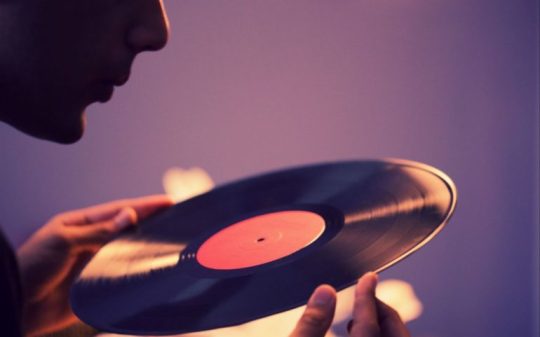
Source: Urban Culture
Now this post is going to be a bit different than the previous ones and I’ll actually be looking at a few of my favourite artists who were part of the jazz movements during the 20th century. I won’t be looking at specific albums and I might not write much about the artists themselves, instead likely focusing on what subgenre they were focused in and known for, whilst also giving an idea of what you might enjoy in their music.
I strongly believe jazz and its subgenres aren’t there to be explained and broken down, but instead should be felt through the soul, with you finding out through a journey what works and doesn’t work for you. These artists aren’t really unknowns and you might find yourself being aware of all of them. With that said, let’s get into it.
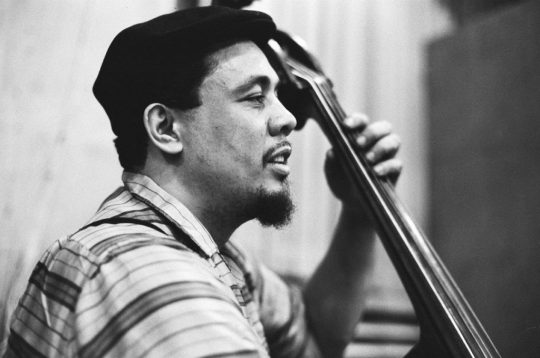
Source: Jazziz
Charles Mingus Well known for his avant-garde jazz and jazz-funk, his compositions are energetic and soulful. Mingus was well known for his love of his vices, which you can feel in his music.
Howlin’ Wolf One of the legends of Blues music, Howlin’ Wolf was hard not to hear, with a booming and authoritative voice.
Muddy Waters “The father of modern Chicago blues”, Muddy and Howlin’ formed a rivalry during the 30s, aiming to outdo each other. What made him stand out was his smooth approach to creating music.
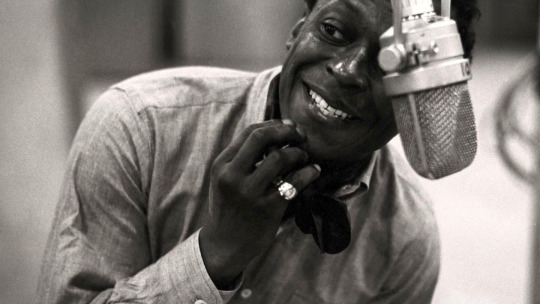
Source: Metacritic
Miles Davis If you listen to jazz, you more than likely know who Miles is. One of the most influential figures in jazz and funk, it’s impossible to describe his style, as he was always evolving, going as far as being as one of the creators of jazz-funk and psychedelic jazz.
Dexter Gordon Let’s swing it! One of the defining characteristics of Gordon’s jazz and swing was how “big” it was – demanding attention and being a humorous artist meanwhile.
Herbie Hancock Originally being a part of the Miles Davis quartet, early on in his career the artist was told by Miles to “not play the butter notes”. Famous for his bop and funk, Hancock didn’t really ever understand what the jazz great actually meant by “butter notes”.
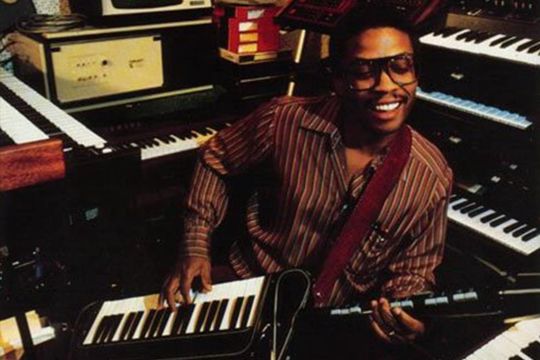
Source: Sydney Opera House
Larry Lovestein(Mac Miller) A bit of an odd one, as Mac Miller is known for his rap. Only releasing a short 25 minute record, he immerses himself in romanticism and classic jazz.
Marvin Gaye The Prince of Soul”.
Kamasi Washington The most modern name in this list, Kamasi is one of the best sax players of his current generation. His music really puts you into a deeper state of mind, crafting a very modern sound, which makes you reflect on the different moments in life.
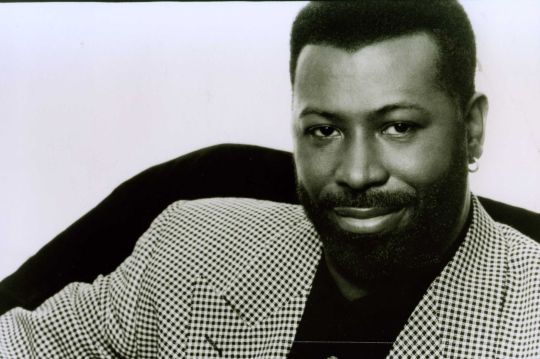
Source: Philadelphia Inquirer
Teddy Pendergrass Sexy, smooth and funky, Teddy’s music definitely reflects the passion of human nature.
There’s tons of other artists and greats which you might enjoy, such as John Coltrane, Charlie Parker, Ella Fitzgerald, Louis Armstrong, Tommy Flanagan, Chet Baker, Duke Ellington, Don Shirley, Smokey Robinson, The Sons of Kemet, Thundercat and many others - jazz and its subgenres is a gift that keeps on giving.
I hope these posts were helpful for people looking to find some new music and you won’t find yourself in drought for a while.
#jazz#soul#funk#music#recommendation#music recommendation#what to listen to#new music#song#songs#blues#miles davis#herbie hancock#Marvin Gaye#Dexter Gordon#Charles Mingus
1 note
·
View note
Text
Music drought recommendations III – RnB and Pop
Third installment in my music recommendation mini-series and in this one I’ll be looking at some more somber records in the RnB genre and records which could arguably be described as pop.
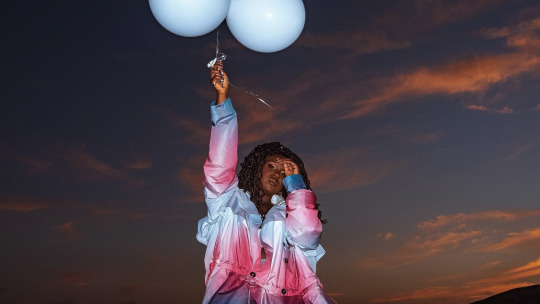
source: NPR Music
Now, I don't hear people talking about RnB as much as hip-hop, but truth be told, I think everyone needs a bit of music for when they’re in their feelings and this is the genre exactly for that. If you find yourself listening to music from artists such as Frank Ocean, Solange, The Internet or Kehlani, then I think you’ll find it worth your while to hear at least some of the albums I’ll be talking about!
Jean Deaux – Empathy EP
Still a bit on the low-key side, Jean Deaux has made a name for herself with versatility and softness in her music. And that’s exactly what you get in Empathy – the record showcases the excellent range of her voice, going from cheerful to sorrowful between songs. At times the EP does make you feel a bit puzzled as to what she’s addressing, as she herself seems to get confused in her own thoughts, Jean asks for empathy from the listener, as she is human.
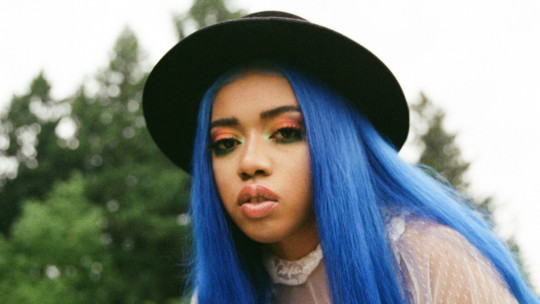
source: djBooth
Ravyn Lenae – Crush EP
Produced by The Internet’s very own RnB innovator Steve Lacy, Crush is a very modern take on Blues and Soul music, ranging between slow and moody and fast and light-hearted. Although not the longest project, on it Ravyn gets quite personal and she doesn’t seem to be scared of giving light to her heartache and disappointments, making this a very relatable listen.
Lolo Zouai - High Highs to Low Lows
An excellent RnB/pop album from mid 2019, which I think didn’t receive enough attention, Lolo Zouai’s debut project tells the amazing story of what really is behind a modern singer making it in the world. Her brightest moments on the album are those where she’s seemingly most ungarnished – singing about how she can’t wait to get paid more than minimum wage or how none of her make-up is expensive. Wearing her heart on her sleeve through the entire record, Lolo shows herself as very human, not straying away from topics such as her depression.

source: i-D
Mereba – The Jungle is The Only Way Out
Going back to a previous post of mine, this was one of my top 20 albums for 2019, ranking in at 7. I’ll allow myself to quote my opinion on the album from back in December, as I believe that’s a good enough reflection on how much I enjoyed it - “An album that I believe didn't get enough attention, Mereba's latest release is a very conscious R&B project, full of beautiful darkly-toned synths and very slow and jammy folk. The topics range from facing your vices, to the overwhelming emotions of seeing your lover and the self-realization that people's opinion ain't shit.”
Jamila Woods – LEGACY! LEGACY!
Arguably the best RnB album of 2019 and definitely one of my favourites alongside Mereba’s record, Jamila Woods crafts a very heavy and introspective project. Getting into topics such as black excellency and political inequality, Jamila gives her strong-worded and well written opinions on some very controversial subjects. Introspective, in LEGACY! LEGACY! She looks at the way her life has been shaped by the decisions of her past, whilst looking at the possible outcomes for the future, light and dark.

source: Chicago Reader
Blood Orange – Negro Swan
I put Blood Orange’s 2019 Angel’s Pulse in my top 20 albums of 2019, but I’ll be recommending his former record – Negro Swan. A very mellow and spacey record, Dev Hynes explores the range of his anxieties and concerns regarding his future and present. With a heavy focus on black plight, Negro Swan creates a very melancholic and nostalgic atmosphere, showcasing Devon’s emotional range. One of the selling points for this record for me is how unapologetic he is about who he is – sometimes he might not come off as cool or interesting, but Dev knowns exactly how real he is.
Berhana – HAN
Already making noise with his debut self-titled EP, Berhana is a bit of a different artist in contemporary RnB, with him finding inspiration in Japanese funk and jazz. Incorporating those unorthodox influences in his debut studio album, Berhana is as honest and diverse as you can get – introspective, the artist created a record which reflects his influences perfectly, whilst keeping it a very cohesive and conceptual listen.

source: music, why not
If you’re still in your feelings after listening to these records or you just couldn’t scratch that emotional itch in the right place, I’d give also give a listen to one of these: SZA – Ctrl, KAYTRANADA – 99,9%, Kari Faux – CRY 4 HELP EP and Kelela – Take Me Apart.
#music#RnB#R&B#feelings#emotions#what to listen to#song#recommendations#recommendation#music to listen to#Berhana#Blood Orange#Jamila Woods#Mereba#Lolo Zouai#Ravyn Lenae#Jean Deaux#Frank Ocean#Solange#Kehlani#SZA#KAYTRANADA#Kari Faux#Kelela
4 notes
·
View notes
Text
Music drought recommendations II – conscious rap and jazz-rap
So, in the second post in my installment of album recommendations, I’m addressing another subgenre which I’ve been asked about recently - “I’m a bit dry on rap, do you have any recommendations for albums or tapes like Kendrick or Earl’s?”.
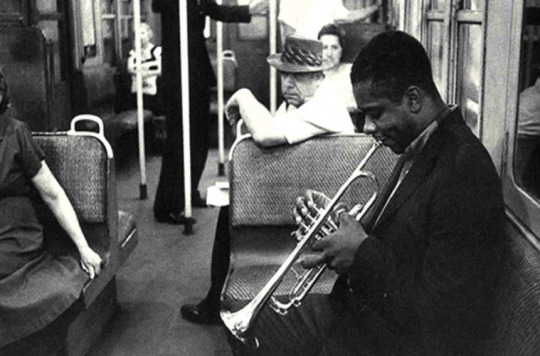
I’ll be looking at records under the conscious and jazz-rap umbrellas for the sole reason, that I feel the two are more often than not interconnected and share an audience. My album suggestions will include music which might have similar vibes to your J. Coles, Kendrick Lamars, Joey Bada$$’s and even MF DOOMs of the hip-hop universe. As such, if you’re looking into something a bit more social and introspective, I think these might be for you!
MAVI – Let the Sun Talk An artist with a vibe which you can describe as similar to Earl Sweatshirt’s, Let the Sun Talk is full of witty bars and clever wordplay. MAVI’s debut studio album acts as his graduation from hip-hop’s underground and a passage to a wider audience. Through Let the Sun Talk, he aims to find rejuvenation for his soul, whilst never fully sharing exactly what’s torturing him so deeply, keeping the mystery alive. The album provides more existential questions than answers to them, leaving you with a desire to hear more.

Saba – CARE FOR ME Another very lyrically dense record, CARE FOR ME is arguably one of the best storytelling projects of the past few years. In a very melancholic mood, Saba tells the stories of his come up, mourning the loss of his cousin and challenging the social injustice shown to him as a black man in America. The project paints a picture of the change in people’s attitude towards him back in his home town once he made it as a rapper, how he’s become more distant with time due to the life he’s had and the way he’s changed the way he views life due to this.
Vince Staples and Larry Fisherman – Stolen Youth Vince Staples’s 3rd mixtape, Stolen Youth is executively produced by a certain Mac Miller, mixing a blend of heavier boom bap and west coast smoothness for one of Vince’s best, yet most underrated projects to date. Full of stories from Vince’s childhood about growing up in the ghetto, seeing murder, prostitution, drug trade, in this project Vince addresses the trauma and consequences of living in such an environment, whilst looking to a higher being for answers as to why the world can be as such.
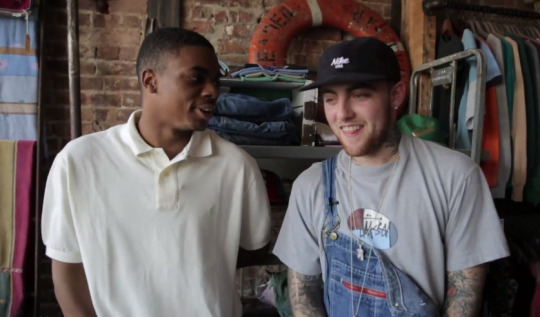
KAAN – Twenty Nine Arguably one of the most underrated rappers in the game right now, KAAN’s late autumn project is full of excellent production and a showcase of excellent rapping skill. Similar to Kendrick in the way he raps, Twenty Nine looks at social issues which have emerged in the rapper’s life whilst he’s been working to make himself a bigger name in hip-hop. I’m cheating a bit, as I’m using Twenty Nine just as one of his many excellent projects, I’d advise to listen to KAAN in general and not to a particular project, as he already has a big discography, whilst still being rather fresh.
Sy Ari Da Kid – Better Safe Than Sy Ari Featuring big names such as JID, EarthGang and Cyhi the Prince, Sy Ari’s 2018 mixtape is a very contemplative and soulful album, questioning the social climate in the US and looking back at the difficult conditions he’s had to grow up in, whilst living in The Bronx. The record touches on quite a bit of social and racial themes, with the vibe of the album hitting very heavy on songs such as “New Malcolm X”, where the jazzy production coupled with Sy Ari’s social commentary is an excellent take on the traditional New York sound.
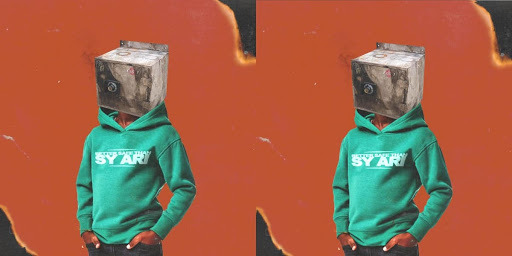
Isaiah Rashad – Cilvia Demo My favourite record of all time, Cilvia Demo is Isaiah Rashad’s official introduction to a mainstream audience. The mixtape has a mix of jazz-rap, boom bap and southern production, culminating in a very vibey, laid back sound. Lyrically very clever, Rashad tells the story of his upbringing, his addictions, the demons haunting him daily, the search for inner peace and the worrying times we live in. Constantly challenging topics which he might not find answers for, Zay showcases his ability to create comfort for his listener, even without giving finding concrete answers to his existential dilemma.
Mick Jenkins – The Water(S) Exploring the concept of treating water as knowledge, Mick looks at the importance of attaining and spreading knowledge and the importance of educating yourself about the social climate we live in. The sound of the tape reflects its name, with fluid and cohesive production, smooth jazz samples and the celebration of jazz and soul music as a whole. Diving into the depths of existentialism, Mick’s deep voice is coupled with the anxiety of a person in their 20s trying to find comfort in the unknown.
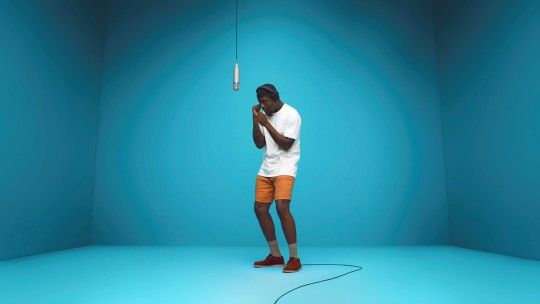
If you find yourself enjoying any of these projects, I’d also strongly recommend giving a listen to A Tribe Called Quest – We got it from Here… Thank You 4 Your Service, YBN Cordae – The Lost Boy, Freddie Gibbs – Pinata and JID – DiCaprio 2. Additionally, if you liked a certain artist, you should definitely check out his other records as well!
#music#recommendation#music recommendation#jazz#conscious rap#rap#hip-hop#what to listen to#listen#Isaiah Rashad#Mick Jenkins#Freddie Gibbs#JID#a tribe called quest#Sy Ari Da Kid#KAAN#MAVI#Saba#Vince Staples#Mac Miller#production#J Cole#MF DOOM
0 notes
Text
Music drought recommendations I – Soulful rap and Neo-soul
So, the past few weeks I’ve had a fair share of acquaintances and friends share with me, that they’ve been in a bit of a musical drought recently, especially with the whole lockdown scenario, where a lot of musicians postponed their upcoming projects. I’ve been asked things like “Do you have any song or album recommendations like x”, “What should I listen to that sounds like x” and “I’ve not heard anything new lately, can you help out with some music recommendations?”. Truth be told, I’ve been on somewhat of a drought by my standards as well, as I’ve been rediscovering projects from the early 2010s I forgot I had listened to and found a few really underground artists. I’m talking less than 5k listens on a lot of their music.
I’ve helped out all of my friends who asked me about it and I figured since there’s a fair chance a lot of people are going through a similar drought, I might as well write a few posts with which I can help out anyone who’s looking for some new shit to listen to.
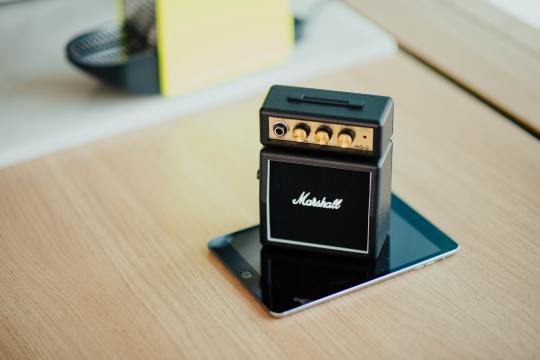
The first post I’m writing will be about albums or artists than have a laid-back, soulful sound – if you like new Tyler, Anderson. Paak or even some of Brockhampton’s music, then this will be a piece with music recommendations which you might enjoy. I’ll be looking at some more commercial albums and also some more low-key projects, so that you can have music to share with your friends, as well as songs to jam to on the low-low. Obviously I recommend the artists I’m sharing’s whole discographies, but these albums in particular might be the right vibe for your tastes.
Mac Miller – The Divine Feminine You can’t talk about Anderson. Paak and not mention his feature in Mac Miller’s Dang! In general the Divine Feminine in its majority is an incredibly soulful and groovy album, combining lyrical ability with romantic and sexy production. The project puts you through the whole array of love-related emotions and leaves you with a feeling of nostalgia of all of your previous romantic encounters.
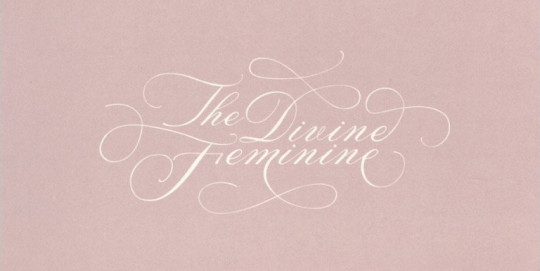
Arin Ray – Platinum Fire Arin Ray’s debut album combines modern R&B with elements of funk and deep sexy saxophones with which the artist paints a setting of a 60s blues piano bar, in which everyone can’t help themselves to not dance. The record at some points builds up and explodes with soulful energy before again fading out to a more lax, vintage-feeling blues sound.
Knxwledge – 1988 Knxlwedge has been one of the best producers in the past decade when it comes to using and twisting soulful samples to paint a picture of nostalgia. The tape has a very warm energy surrounding it with the producer’s signature smoothness defining it as a typical “Knxwledge project”. What differs this record from a lot of similarly produced ones is Knxwledge’s approach to the human voice – the way he twists and pitches it to create emotions with it.
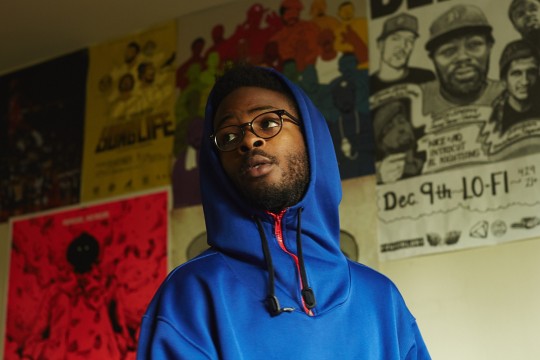
Childish Major – Dirt Road Diamond Not a debut record, but another debut studio album, Childish Major’s music combines hip-hop with jazz in a very somber manner. Exploring the topics of lost love, falling for the wrong people and intimate downfalls from the outwardly appearance of a very posh-looking guy, Childish crafts a very honest and self-reflective record, painting a vivid picture of falling down and getting up again.
BJ The Chicago Kid - 1123 BJ has turned into a bit of a virtuoso of mixing modern neo-soul and R&B with vintage soul and funk. Creating a very relaxed and unbothered vibe for all of his projects, what makes him so different is the way he uses his voice to create a feeling: nonchalant, but emotionally engaged; zoned out, but in his feelings; humble and welcoming, but demanding attention. In 1123 the singer shows that you need not do anything else than be yourself.
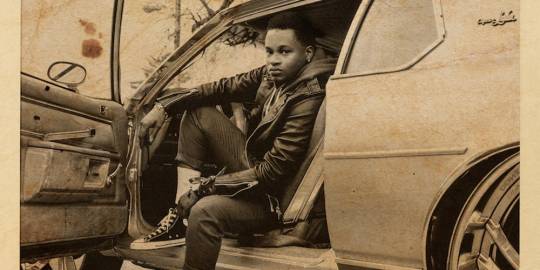
Noname – Room 25 I’ve talked about this album in the past, but I think it’s always deserving of being talked about to be fair. Noname’s a poet first and a rapper second and you can hear that on Room 25 – surrounded and often overwhelmed by jazz and neo-soul samples, Noname talks about the challenges and experiences of being a modern woman, as well as being a modern black woman. Very heavily focusing on telling the story of her life, sometimes it feels like she’s rambling to a friend, bordering on the annoying, but never actually annoying you, rather making herself more human and relatable.
Klassik – QUIET The most unknown record from these recommendations Klassik created a very retrospective neo-soul record in which he reflects on all of his previous actions in his life so far. The record’s general vibe is that of a person trying to find inner peace and accept himself for who he is, he just wants it all to be QUIET for a moment. The album is reminiscent of those late nights, where you’re by yourself at home, listening to music and wondering why you are where you are.
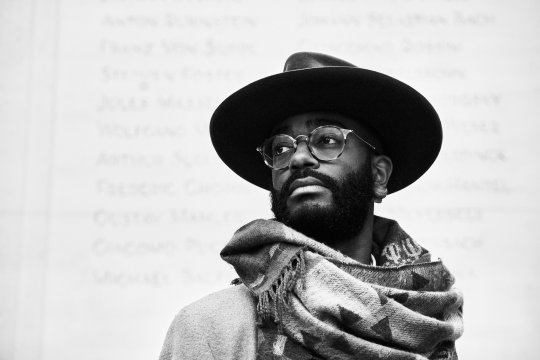
Duckwrth – IM UUGLY Always a bit of an oddball in LA’s contemporary hip-hop scene, Duckwrth created an album which was a very creative twist on conscious rap. The record seemingly feels very incohesive, but at the same time fitting together well. The concept of the album being looking at all your flaws and accepting them with a smile or even, fittingly, with humor, the production on IM UUGLY is a mixed bag of jazzy, poppy, soulful, funky and even more typical hip-hop beats. Duckwrth has a lot of fun on the record, whilst still telling a relatable story and never appearing as too preachy, although there is a noticeable lack of polish in some songs.
If you find yourself liking some of the recommended projects, I’d also give a listen to records such as Ari Lennox’s Shea Butter Baby, Kota the Friends’s FOTO, Smino’s Blkswn and Overdoz’s 2008. Hopefully with all of this in mind, you won’t be feeling the need to ask your friends for any music recommendations any time soon!
#music#drought#listen#new music#newmusic#discover#whattolistento#music recommendation#recommendation#Duckwrth#Mac Miller#Klassik#Anderson Paak#Brockhampton#Tyler the Creator#Noname#bj the chicago kid#Childish major#Knxwledge#Arin Ray#Soul#Jazz#rap#hip-hop#neo-soul
0 notes
Text
Do all artists need to be versatile to be considered "great"?
This past Friday R&B singer Brent Faiyaz dropped his EP/Mixtape Fuck The World, which was his third notable project after the major success of his debut 2017 LP Sonder Son and his 2018 EP Lost. After a couple of listens to the record, I was as always left with a very positive opinion on Brent's music and as always quite liked his mellow, romantic R&B production combined with his slow, sensitive singing. A friend of mine wasn't as happy with the project though. After linking up with him in the eve after the album's release and discussing recent music, he admitted that he was pretty bored of Fuck The World. His reasoning was that Brent Faiyaz hadn't evolved as an artist too much since his debut album 3 years ago and especially his latest work sounds like one very long, samey song, rather than a cohesive, interesting project.
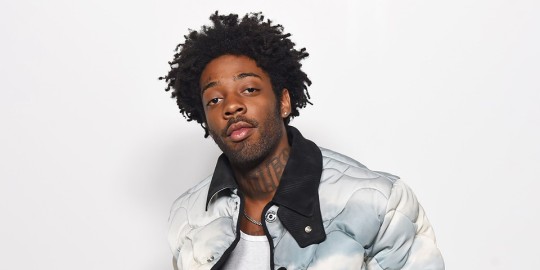
I thought about it for a few minutes and I did actually agree - the project had a very similar vibe to The Internet's Hive Mind for me, another project which sounded like one very long song, rather than an album. The reasoning for this is obviously the similar production and cadence used on all of the songs, leading to a similar vibe through the whole album. This isn't a knock on neither The Internet, nor Brent Faiyaz's work as I'm quite a fan of both and actually argued quite a bit against my friend that not all artists need to be versatile and provide different sounding projects every time or have songs covering multiple topics or vibes in the same record.

After having thought about it a bit more the past week, there's artists who can support both sides of the argument as well. ScHoolboy Q is a rapper who likes to switch it up literally every project with his most successful album Oxymoron being based on gangster rap. His next work was Blank Face which was a more groovy and funk-inspired rap album, which was also extremely successful, but his latest work CrasH Talk was much less of a hit with him changing it up to trap-focused beats this time. In the past few months R&B king Frank Ocean released a few rap singles, which were completely different to what we're used to hearing from him usually and they were honestly quite bland and boring, at least to me. Artists such as DaBaby and PARTYNEXTDOOR have a very similar vibe and sound in the majority of their songs, but neither of them can be called artists who miss often, as they both have garnered quite a bit of success with their music.

Obviously there's arguments to support that changing it up can also lead to blowing up if done right. Childish Gambino made it big as an artist after completely changing his rap sound to a very heavy soul album in "Awaken, My Love!". The likes of Denzel Curry, Danny Brown, JID, Joey Bada$$ and Freddie Gibbs are considered some of the best rappers of the current generation and one of their biggest strengths is their versatility in both the way they rap and also them having the talent to sing in their songs when need be. Hip-hop superstar Kendrick Lamar arguably changes it up not only for every album, but for every song, with you never knowing what to expect from him, yet he's considered the GOAT. Going back you can say the same for Andre 3000, whilst at the same time people such as MF DOOM focused much more on perfecting their craft, rather than being extremely versatile.
This makes this a very open topic for discussion and a question which really doesn't have a set answer - some artists have a special sound they can stick to and garner huge attention, whilst others are known as versatile beasts who can make a banger with any beat you give them. So the question remains, do artists need to be versatile to make it big?
#rap#R&B#hip-hop#music#versatility#success#boring#interesting#Andre 3000#MF DOOM#Kendrick Lamar#Brent Faiyaz#album#DaBaby#PARTYNEXTDOOR#Frank Ocean
0 notes
Text
The term "black music" is culturally ignorant
Over the past decade or so in my home country of Bulgaria the term "black" music has been a mainstay in club culture. Referring to expensive parties, in which commercial rap music is played, often partnered by lots of cheap drugs and overpriced alcohol, this culture has strongly promoted ignorance in the hip-hop scene due to the nature of how the word is used. Over the past 3 or 4 years the term has grown stronger than ever with mainstream youth society using it to refer to rap music even outside of these obscene parties.
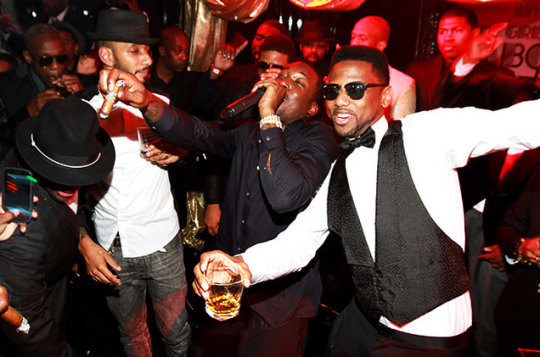
What a lot of people probably don't realize is how culturally ignorant this term is, due to how much it simplifies hip-hop music and the culture surrounding it in general. Looking back at music in the past 100 years, the african-american community has gifted us with some of the best genres and musicians of all time. This is why even saying "black" music is quite ignorant in itself and shows a lack of interest in the culture you're trying to enjoy and be a part of. In the last century black artists have provided us with blues, jazz, funk, disco, R&B, rap, trap and even some elements of experimental music. With all of this in mind, what exactly do people mean by "black" music, when there's so much historically giant music genres, connected with the african-american community?
They obviously mean rap - rap is the big gun in current mainstream music, but although it was created by black folk in the 1970s and is still dominated by african-american artists, there's still a handful of white guys which also have made their mark in hip-hop culture. Are we just going to not take their contribution to the culture in mind? Obviously it's taken into account by the people who use the term "black" music. In general the expression is used by middle-class white kids who never had too much interest in hip-hop culture or understood the lifestyle associated with the culture, as they're the main audience for the types of parties which promoted this term and completely butchered it whilst doing so. They're also the main audience for the white rappers which technically don't fall into this term, which is a bit of an oxymoron.
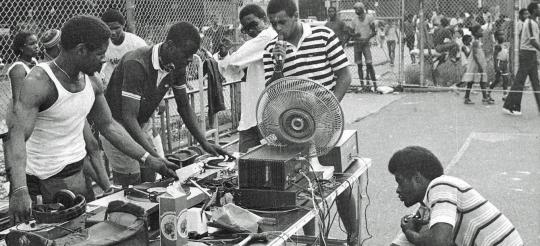
With this said, I believe it's our job as people who listen to rap - be it casually in the odd party or having it as our main 24/7 genre - to make the distinction between musical genres in the black community and give the deserved respect to the musical styles which are currently popping appropriately. It's quite easy to just follow the herd mentality and not care about the consequences the culture is dealing with due to derogatory and ignorant terms such as this one, but if you do really enjoy the type of music you're listening to in these types of parties, elevating yourself a bit and making the distinction between the genres will be helpful to both yourself and everyone around you. As far as I'm aware whilst writing this, Spotify and Apple Music still don't have a "black" genre, so finding music will definitely be a bit difficult if we don't educate ourselves at least a bit about what we're listening to.
#music#genres#culture#ignorant#appropriating#disrespect#hip-hop#rap#R&B#jazz#blues#funk#term#black#community#youth#parties
0 notes
Text
The post 2017 trap wave has been... pretty boring
Recently Roddy Ricch dropped his official debut album Please Excuse Me for Being Antisocial. Although born and raised in Compton, California, the rapper has adopted a very new-wave melodic trap sound, typical for the latter part of the 2010s, rather than the historically successful gangster-inspired sound with lots of storytelling elements from the rappers who came up from that area. In the past few years we've witnessed the rise of melodic, autotune-fueled trap with lots of slurred speech and less of a focus on lyrical complexity.
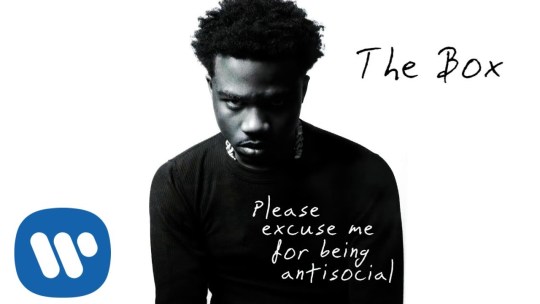
This type of trap gained popularity in the early to mid 2010s when Future and later Young Thug became two of the most popular rappers in the current music industry, with both of them "creating" and developing the sound. Later on Travis Scott adopted the same type of heavily autotuned trap melodies, adding more heavy 808s and aiming to create club bangers which hit harder, rather than be catchy. The huge spike in popularity from this type of sound predictably heavily influenced the next crop of rapping talent to come through and make a name for themselves in the game. In the latter 2010s we saw the rise of acts such as Lil Baby, Gunna, Lil Mosey, A Boogie Wit Da Hoodie and lately Don Toliver and Roddy Ricch. Lil Baby and Gunna came through Thugger's label, appearing on a multitude of songs together with him, whilst Don Toliver is a Travis Scott understudy, being a main feature on the recent JACKBOYS record.
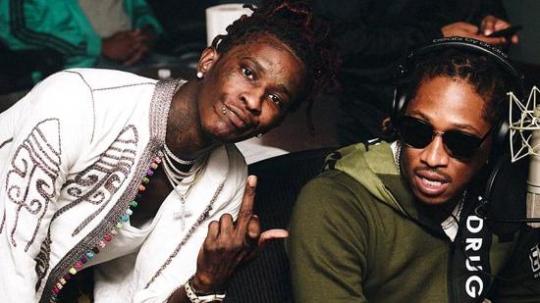
Now, it's quite obvious that this new generation of trap music in no way aims to tell a thrilling story or mistify with complex rhyme schemes and witty punchlines, just like its SoundCloud and Three 6 Mafia inspired predecessor. Trap music has in general defined the clubbing scene the past decade and has given some of the hardest hitting party music that we could've imagined fitting the 2010s ideally. It also gave rise to some fantastic rappers and personalities such as Denzel Curry, Lil Uzi Vert, The Underachievers, JID and Ski Mask the Slump God.
The issue with the current crop of trap artists is how generic and lazy the current rap scene is becoming. Although acts such as Future and Young Thug did become popular with this type of sound, Future came through as one of the first rappers to slur his words, whilst Young Thug has a very distinct and playful voice and adds amazing energy to his music. Travis Scott for all of his shortcomings, can actually go really hard and write complicated bars to impress even the most critical of oldheads. The plain and catchy sound of the majority of trap production currently aims to compliment these rapper's talents and make them the focus of the music, as a more complex and harder to produce beat often takes a lot of the listener's attention and unless you're an MF DOOM or Freddie Gibbs, you're better off not rapping on one of those.

The current crop of young artists has adopted similar styles to these rappers who inspired them, but unfortunately for them, they lack the character or lyrical ability to stand out in the crowd. The likes of Gunna and Lil Baby clearly lack the energy Young Thug has, which makes them sound extremely bland and they often end up drowned by the beat, although its often simple production. Don Toliver and Roddy Ricch try to be a bit more creative with their bars, but often sound too simple and sometimes cringy on top of the generic production, making them end up relying on catchy hooks to keep the listener's attention, which although will definitely work for the majority of club music and will impress the mainstream for a while, will likely not give them any longevity.
As it currently stands, the majority of the trap artists which blew up in 2018 and afterwards will have to evolve quite a bit as acts to have a place in the industry, or will face the fate of rappers such as Kodak Black and Lil Yachty from the previous trap wave, where each new project sounds more and more boring for the listeners with them ultimately slowly fading into obscurity when the next temporary hip-hop wave enters the mainstream for a while.
#rap#trap#2020#new wave#music#Young Thug#Future#opinion#Travis Scott#Roddy Ricch#generic#autotune#Lil Baby#Gunna#melody#Don Toliver
3 notes
·
View notes
Text
We live our life through music
During the past few decades musicians have gained a lot more independence and freedom in creating their artwork, thus letting their personality and experiences shine in their sound. We've moved into much more intimate performances from a lot of the bigger names, especially in hip-hop and R&B where the quality of the music has arguably made way for the artist's personality to be the main reason why someone relates to their music and has them as one of their favourites. With social media we've also gained a lot more access to the musicians personal lives and thoughts, with which we've found out what makes them say the things they do and let us feel closer to them as people than ever before.

With these changes in music culture, some artists have had a much stronger influence and their lyrics have made a much bigger impact than in previous generations, where now quite a bit of us use music and lyrics to paint the picture of our lives and who we are. Growing up we get attached to the artists who are going through similar emotional and life struggles as us, they tell the story of the difficulty they'd have with these deep traumas most of us are scared to share and show to the world. As such they act as both an inspiration for us, as they share our story through their own experience and at the same time as a close friend, due to us relating to their hurt. Growing up, a lot of artists helped me work through some of my insecurities and darker thoughts, because they were the only ones who could understand them without me even sharing - they inspired me to be a "better me", to grow up as a person and work through things. They also showed me a different side of life in fashion and art, helping to establish my taste in these cultures.
For a lot of us, one of these people was Mac Miller - one of the most personal and fearless artists of the 2010s generation. Discussing his addiction issues, reminding everyone who doubted him that he made it, caring for everyone around him deeply before himself, Malcolm was a friend to a lot of us, simply due to his music hitting so close to home. Due to this his death wasn't "just a famous person dying" and was heartbreaking, like one of your best friends ending up in the grave.

For me personally I've lived my life through a lot of Isaiah Rashad's lyrics - not only do we share a zodiac sign, but we've shared a lot of the same addictions, self-destructive behaviour, darker thoughts. Rashad was on a quest to find himself and be happy and through his music I could relate to that, as I was going through a similar experience and facing similar disappointments. Sharing a love for the same vices, living to just make everyone feel like a homie, I could grow a lot as a person thanks to his influence. For some of my friends Joey Bada$$ was a very similar figure in their lives, due to this spiritual lyrics and more introspective feelings towards politics and finding inner balance. They could relate to the spiritual journey he was going through, as they were in a very similar state of mind.
In the current age we have the greatest access to artistry we've ever had and as such, we're getting absolutely drenched in influences which build us as a character and personalities we can relate to and find ourselves in. Music is one of the greatest platforms for this and there's emotions for everyone to find and feel.
#Mac Miller#Joey Bada$$#Isaiah Rashad#Music#lyrics#life#emotions#relating#zodiac#hardship#disappointment#r&b#hip-hop#friend#story#impact#inspiration
0 notes
Text
Does branding matter more than quality in music?
Over the past decade hip-hop has grown into the widest spread music genre and as such has attracted the most commercial appeal and created the most opportunities for advertising and creating a brand - by that I don't just mean a clothing or shoe brand, rather turning a musician or a public figure into a brand itself. A lot of contemporary artists have invested heavily into developing an image of themselves in the eyes of the public and have spent quite a bit of time and money into marketing their music and their face, so that they can garner the most attention, compared to their contemporaries.
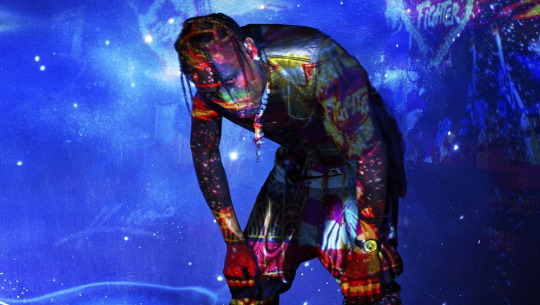
A very serious side effect of this culture has been the heavy focus on elevating artists, who have a particular catchy, easy to get into sound, that gets markerted heavily as to become mainstream as soon as its released. You can easily point out examples of such artists, especially after 2015 - Drake fixated on making radio hits and the substance of his music deteriorated heavily post If You're Reading This It's Too Late. Most critics agree that Travis Scott's most successful project was Rodeo and that the artist hasn't been able to replicate the success of his debut album so far, but his subsequent projects, especially Astroworld, received much more mainstream attention and were labeled as hits and Astroworld a classic, although the album has aged quite poorly during the past year. Another example could be pointed out with Cardi B heavily marketing herself as a "bad bitch" and using the key-feature of her being a woman as to create watered down mainstream rap and trap, which got very heavily advertised and as such later won a Grammy, although 2018 had much better albums musically-wise nominated, such as Daytona and Swimming.

A symptom of this issue has also reflected in the Billboard Top 100 Charts. In the beginning of 2020 Travis Scott released JACKBOYS, with features from artists such as Don Toliver, Migos and Youth Thug. The record was heavily touted as a very serious trap banger. Ultimately though it was a disaster sonically and sounded like a very watered down generic trap album, no different than what was being released in 2016 from uninspiring trappers in SoundCloud and Youtube. Regardless of that, the album hit Number 1 on the Billboard Top 100, even though the sheer number of quality albums released towards the end of 2019, such as KAYTRANADA's Bubba and Summer Walker's Over it. Future and Drake's track Life is Good also took the number 1 spot in the Billboard 100 Singles Chart, even though it suffered from similar issues, centered around generic trap beats and a heavy focus on autotune.
With that said, a lot of the era-defining artists have been getting less and less attention during this decade and as such haven't been the mainstream inspiration for a majority of the young artists coming through currently. The rookies in hip-hop and R&B have mostly experienced and been inspired by the era of branding and easily-digestable music and as such a lot of them aim to replicate that. The result is that a lot of the upcoming young artists have so far developed a very uninspiring and generic sound, without any claim to genre-pushing talent, contrary to the early 2010's Kendrick Lamar, J. Cole, ScHoolboy Q, Kanye West and the like. Roddy Ricch's debut studio album Please Excuse Me For Being Antisocial did take the number 1 spot in the Billboard 100 Chart this week, but the album is suffering from the same issues as the Travises, Drakes and Futures of this world, where the record is aimed at being easily digestable and will sell lots of copies initially, but will have a short shelf-life in the coming years.

Artists such as Danny Brown, Earl Sweatshirt and Jhene Aiko have invested a much larger amount of time honing their craft, rather than into becoming a public persona and this does show in their music, with their releases from the early 2010s still holding their own nearly 10 years later, although without receiving the huge commercial attention most of the "stars" in rap receive.
This has been an issue that's always existed in hip-hop with the likes of MF Doom and A Tribe Called Quest making way for your Biggies and 2Pacs in the 90s and The Roots and Pusha T staying in the shadow of your Lil Waynes and 50 Cents until later on, but the issue has really hit a peak in the late 2010s with all the commercialization in hip-hop culture. As such the question that needs to be asked is: Will hip-hop burn out due to too much focus on branding and watering down music, such as rock and punk in the 80s or will the genre live out this commercial cycle and there will be a return to more substance-focused music? It's an issue worthy to ponder about.
#hip-hop#rap#R&B#commercialization#commercial#marketing#image#Travis Scott#Drake#Future#Kendrick Lamar#quality#quantity#talent#j. cole#Danny Brown#billboard top 100#rankings#critics#mainstream#appeal#generic#JACKBOYS
1 note
·
View note
Text
Most anticipated albums for 2020
New year - new me, right? Honestly I don't believe in all of that, as New Years is literally just a night like any other, but if there's people out there who really do believe that a change of year can motivate them, all the power to them! The great thing about a new year though is new music, lots of new music. Ahead of us are 12 straight months of new releases, with some artists who release on a 2 or 3 year cycle being "it". Last year was an amazing year for good records - lots of the top musicians didn't actually release, but we got a lot of amazing projects from some new names and some old dogs proving why they're legends (looking at you Freddie and Danny). With that said, there's a lot of artists that should be releasing projects this year and I really can't wait for them to drop the new guwap.
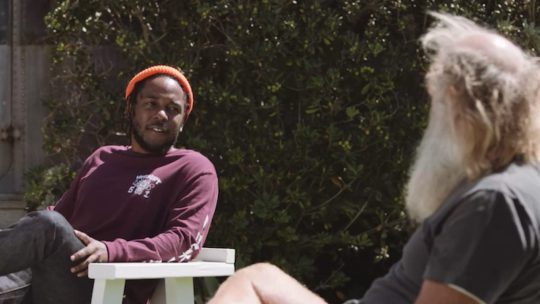
Starting off with the main man, Kendrick should be dropping a new album this year, as it's going to be 3 years since DAMN.'s release in April. I'm quite interested to see what Lamar will be releasing, as there was a mixed reception by fans for DAMN. and it was definitely quite a step down from To Pimp a Buttefly and good kid, m.A.A.d city. Staying on the topic of TDE, it has been over 3 years since Ab-Soul dropped Do As Thou Wilt and I really want to hear what's been going on with one of the kings of witty rhymes and punchlines in contemporary hip-hop, especially as ScHoolboy recently said that Soul doesn't care about him no mo'.
Another person I've been quite patient with, waiting for his next release, has been my favourite rapper Isaiah Rashad, who's been playin' for the whole of 2019. Originally leaking snippets in late 2017 and early 2018, he skipped the rumoured release date of 2018 and claimed he'd release by summer 2019. In 2019 we did find out the album will be called "The House is Burning" and he claimed he'll release it in December. It's now January 2020 and we're still yet to hear from Zaywop. It's been quite annoying waiting for an album from him as it really does seem that as a typical Taurus, the dude won't drop it until he satisfies his perfectionism.
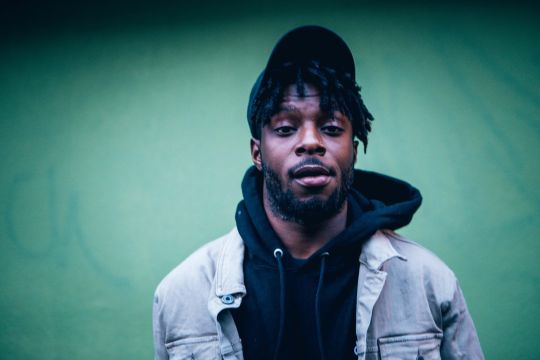
Next up in my most anticipated is A$AP Rocky. I didn't really like Testing, there were a few good tracks, but in general it felt like Rocky wasn't putting in the effort he had put in his previous work. I'm hoping the recent experience he had in Sweden to have affected him and for him to release another emotionally charged album, such as ALLA and LLA.
Noname has confirmed she'll be releasing an album in 2020, which is something I'd love to hear, as I quite liked Room 25. The record had a very different style of rapping, more akin to reciting poetry on a jazzy beat, Noname has a very personal, rambly style, which is adorable in its own way and she gives a very introspective window to being a sensitive woman in the rap game.
I'm also quite excited about a new Joey Bada$$ solo album, as his Beast Coast record was quite disappointing for me personally. I quite liked All-Amerikkkan Bada$$ and 1999 is one of my favourite mixtapes of all time, additionally to that Joey seems to have really grown in his spiritual journey the past couple of years, so we might get a very emotional and personal project.
Except Joey, I'm also quite excited about Vince Staples's project, which will likely be released sooner, rather than later, as we've already had 3 singles. Judging by the tracks it seems this might be a more commercially focused release for Vince and although I didn't enjoy the latest one he released, the first two were bangers. Vince has a knack for experimental and eccentric beats and I honestly would love it for him to jump on more commercial production and show what he's about.

J.Cole has confirmed he'll be releasing an album in 2020, which will be called "The Fall Off". Cole has had a very mixed discography for me, with his albums ranging from average to very good, with the songs in the albums themselves ranging from corny to bangers. I enjoyed 2014 Forest Hills Drive and KOD quite a bit and I'm quite interested to see what Cole's next album will hold, as he's been working very closely with quite a few young talented rappers and singers in Dreamville, who have pushed him to improve and change up his views. Additionally to that, Cole was one of the feature assassins in both 2018 and 2019, so I believe this might be the first project we get from him with features in it, even if only from the Dreamville cast.
In the trap focused community, Lil Uzi Vert and Playboi Carti have been grinding our gears all through 2019, as they've both been hinting at albums, but we've been left empty handed, whilst waiting for Whole Lotta Red and Eternal Atake. I'm also expecting a surprise project from Freddie Gibbs or Denzel Curry, as they've both proven to release a mixtape or album basically every year, although Zel did just drop 13OOD 1N + 13OOD OUT.
Going in the softer genres, 6lack tweeted "New year, new album" a couple of days back, all but confirming he's dropping this year. I'm very interested to hear from him and his love life disappointments, as he and PARTYNEXTDOOR offer a very emotional take on male experiences. Speaking of PND, I'm also expecting him to release this year, as he himself confirmed earlier on in 2019. I loved his first and third projects, so I'm hopeful he'll bring that vibe in the new album.
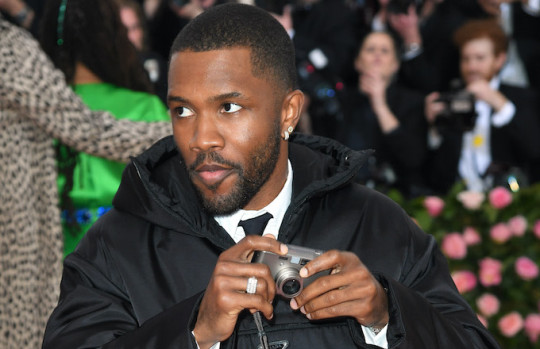
Frank Ocean - it's been 4 years since Blond. Can we get a new album, please? Frank did drop quite a few singles towards the end of 2019, which have pointed to him potentially releasing a new album soon, although the singles were mostly with him rapping, so we might be getting a completely new Frank Ocean. Regardless of that, I just want something from the contemporary king of R&B and break-up music.
R&B sweetheart SZA has also been quiet for nearly 3 years now, as Ctrl was released in 2017. She recently did drop a single with DJ Khaled, which I'd rather not talk about, but realistically she does work on a 3-year cycle, as Z was released in 2014 and she has claimed that she's dropping a new album "Soon as fuck". I'd also love to hear from the sexy Kali Uchis, as it's been a year and a half since Isolation, which was a fantastic pop/neo-soul/spanish album, full of raw emotion and energy.
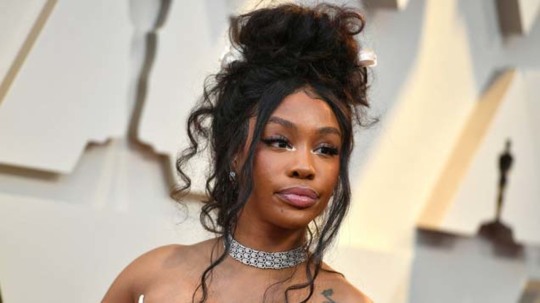
Going into jazzier production, Thundercat hasn't released anything since 2017's Drunk, which was an amazing contemporary jazz record, which left me hungry for more. I'm quite hopeful the saxophone virtuoso decides to bless us with another modern take on jazz during this year.
Last but not least, Tame Impala will be releasing an album on Valentine's day - Kevin Parker's been quiet for quite a long while, as Currents was released nearly 5 years ago. It's quite intriguing to see what kind of direction Parker will take this album, as the two released singles were quite good so far.
#2020#albums#production#music#rap#R&B#Frank Ocean#kendrick lamar#J. Cole#TDE#Dreamville#Isaiah Rashad#Ab-Soul#SZA#6lack#PARTYNEXTDOOR#A$AP Rocky#Vince Staples#Joey Bada$$#anticipated#jazz#Thundercat#Lil Uzi Vert#Playboi Carti
0 notes
Text
My top 20 albums of 2019
As 2019 is in its final month, we're not only about to experience the end of the year, but also the end of a decade filled with amazing music, ground-breaking albums and self-made musical geniuses. We've had some fantastic years, such as 2012, 2014 and 2016 for album releases and this year definitely rivals all of those beforementioned with the quality and quantity of records we had. There was such a great quantity of amazing albums this year that I had to change my original plans of a top 15 list and move it up to a top 20 list, just due to the saturation of projects. Before starting off the list, I'd like to give my honourable mentions to some great albums which would've made the list in quite a few other years: Charli XCX - Charli; clipping. - There Existed an Addiction to Blood; Charles Irwin - Singles (308). I'd strongly advise to check these out as well as the ones I'm about to list off and with that said, let's get going!
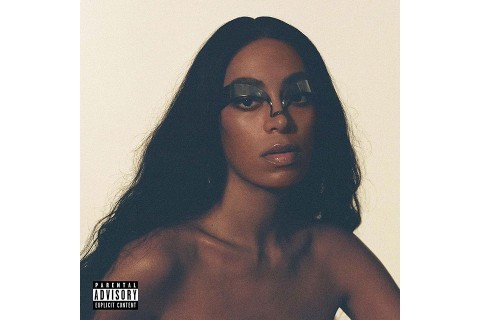
20. Solange - When I get Home A project showing her versality, with music ranging from smooth jazz and blues-inspired vibes to Gucci Mane and Playboi Carti features, Solange once again showed a fantastic ear for production and how amazing her voice really is, without putting it in your face and demanding your attention. Instead the album is like a long, carefree day in mid-April, with Solange's voice giving you an amazing vocal experience.

19. Billy Woods & Kenny Segal - Hiding Places Ranking much lower than last year, the underground New-York genius of Billy Woods once again showcases his amazing talent for rough and grimy delivery combined with industrial, eerie production. The project is very personal for Billy, as he gets very real about his fears and anxieties and even takes a spin for the existential as the talented lyricist raps about his mortality, creating a very unsettling and uncomfortable listen, nonetheless keeping you entertained for the whole duration of the album.
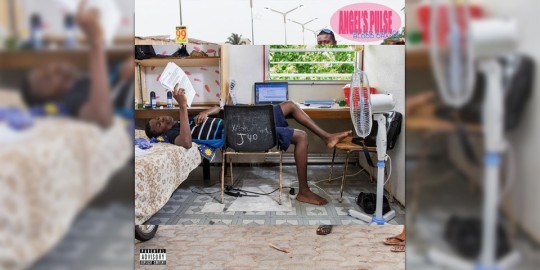
18. Blood Orange - Angel's Pulse A much shorter project this year than last year's Negro Swan, Devonte released a very raw mixtape, presented as a radio-cut, with sudden transitions and unexpected topic changes. The tape is presented with very groovy production, creating the feeling of a warm summer day, but Blood Orange does keep close to discussing personal topics about his anxieties, insecurities and political worries.
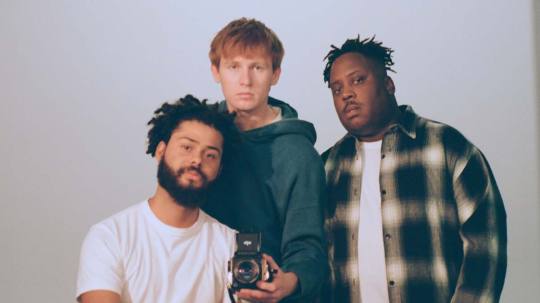
17.Injury Reserve - Self-Titled Definitely not Injury Reserve's first project, but their official studio-album debut, it really lets the odd trio's strengths shine, with its chaotic production, personal bars and focus on making it out of the regular 9-5 life. Full off innovative ideas, such as the song "Rap Song Tutorial" which is true to its name, the album also includes fantastic features such as Rico Nasty, Jpegmafia and Freddie Gibbs, with its main strength being the difficulties of keeping the balance between being a rapper and a regular person.
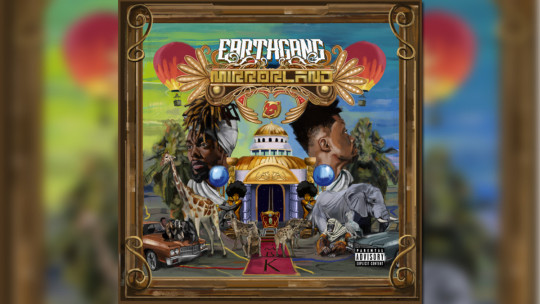
16. EARTHGANG - Mirrorland The Atlanta duo's debut-album, Mirrorland is very witty and cheerful, capturing the story of Doctur Dot and Johnny Venus's come up in the ATL. Full of quirky and whimsical ideas, the record really does remind listeners of Atlanta's OutKast, with EARTHGANG's very own personality and spin to it, with very playful bars and captivating singing, beats with multi-cultural inspirations, such as on "Tequila" and banging trap production, the album is a fantastic mirror to the duo's potential.
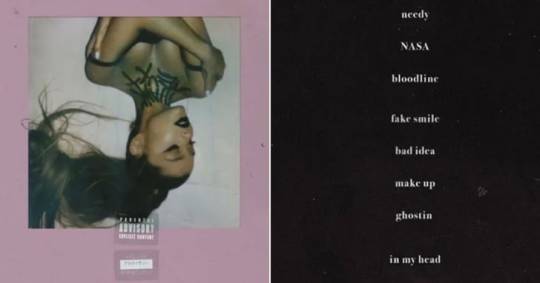
15. Ariana Grande - thank u, next Carried by the freedom and carelessness of Ariana's voice, thank u, next is an album inspired by her romantic experiences through her life, addressing Mac Miller, Pete Davidson and her need for sexual freedom. The project explores the insecurities she has experienced with herself and acts as an assertion of Grande's confidence in herself as a woman, creating a huge emotional range during the 12 tracks.
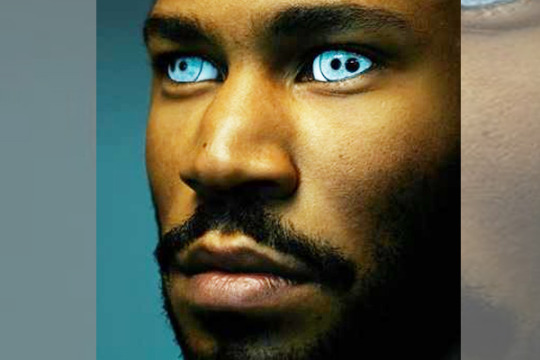
14. KAYTRANADA - BUBBA A return to form for KAYTRANADA after a 3 year hiatus, this was an amazing funky and playful R&B project, blessed with fantastic features. The record really does just make you want to dance along and move to the groove, with its defining feature being each song's simplicity, letting the right elements to shine - like in 10% with Kali Uchis with the sexiness of her voice. Don't let the simplicity of the sound fool you, as BUBBA is full of complex production and small elements and samples that you might miss on the very first listen.
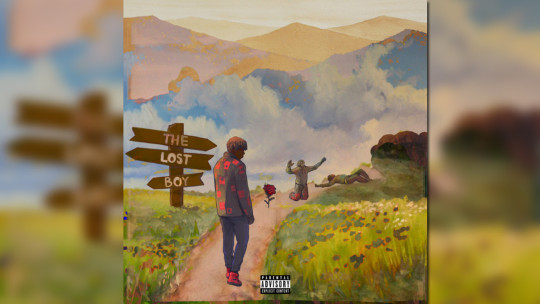
13. YBN Cordae - The Lost Boy Another studio-album debut, YBN Cordae really shows an amazing knack for sticky bars and storytelling, backed by the fantastic production of of a team overseen by J. Cole and feature assassins such as Pusha-T and Anderson. Paak. Although occassionally a bit too corny, the project paints a fantastic picture of his persona and puts the light on a young talent, emerging in the mainstream.
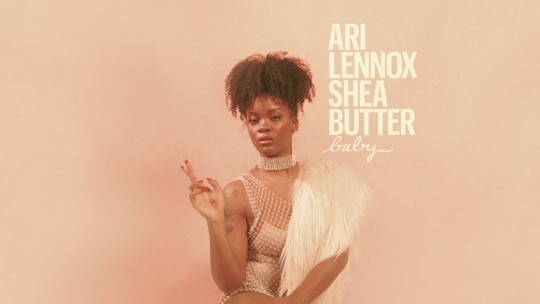
12. Ari Lennox - Shea Butter Baby One of the best neo-soul projects in the past few years, Shea Butter Baby really wraps around you with its warmth and nostalgia and brings back fond memories of kicking it back on a couch with your friends. Full of amazing jazz and funk samples, the slow pace and easygoing melodies really put you in a carefree state of mind and create a chilled out vibe.
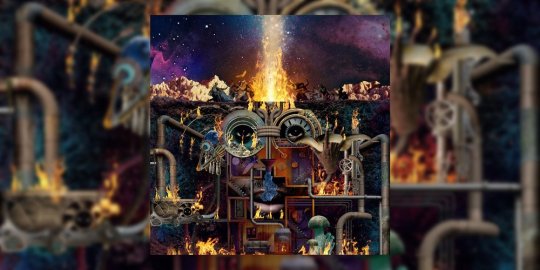
11. Flying Lotus - FLAMAGRA This might be a difficult album for some, but FlyLo once again shows an amazing talent for creating songs from scratch, with a very psychedelic jazz-funk vibe. Each song telling its own story, with the feeling that each second of the album matters, FLAMAGRA's biggest strength is its spiritual element, giving off an energy that touches your soul, if you grasp deep enough within yourself to feel it.
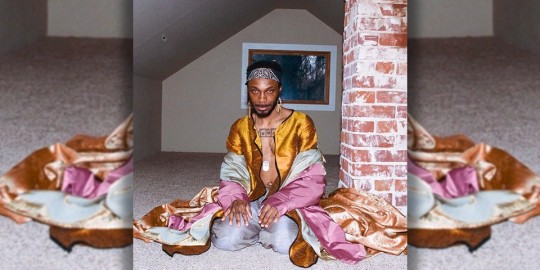
10. Jpegmafia - All My Heroes are Cornballs Much tamer than last year's Veteran, Jpegmafia's last album has a very experimental R&B feel to it, but that does not mean that it doesn't sound like pure musical chaos. Showing a surprising vocal versatility, Peggy raps, sings and screams, keeping true to his "Fuck PC Culture" bars and nasty punchlines. Each song has a very manic and wild energy to it, with the album sounding like structured anarchy.
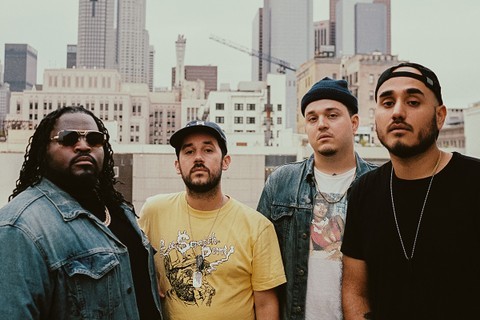
9. Free Nationals - Self-Titled A modern take on classic soul and jazz, Anderson. Paak's Free Nationals crafted a very sexy, intensive album, that gives a feel that there's no hurry for anywhere and everything will happen in due course. The sensual record can easily be described as baby-making music and has handpicked seductive features like Kali Uchis, Daniel Caesar and Syd to underline that vibe.
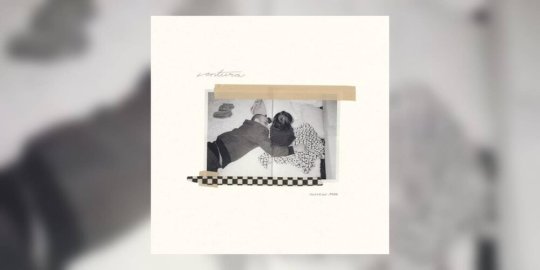
8. Anderson. Paak - Ventura Very much a modern take on a soul record, Anderson. Paak really creates a feel of time-stopping whilst listening to the project's songs. Paak wearing his influences on his sleeve on this one, you can really feel the vibrant melodies and groovy emotions, with the amazing funkiness of Ventura also having a very sensual feel to it, thanks to the thoughtfully picked out features and background vocals.
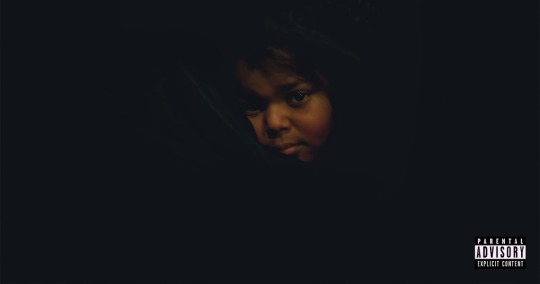
7. Mereba - The Jungle is the Only Way Out An album that I believe didn't get enough attention, Mereba's latest release is a very conscious R&B project, full of beautiful darkly-toned synths and very slow and jammy folk. The topics range from facing your vices, to the overwhelming emotions of seeing your lover and the self-realization that people's opinion ain't shit. Her voice is absolutely stunning and authentic, with it giving off the feel of her being uncertain and lost with each song.
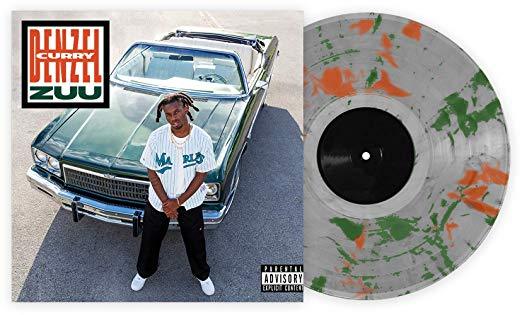
6. Denzel Curry - ZUU Denzel never misses and this is fact once again - releasing his most dynamic record to date, Zuu goes back to Zel's roots of South Florida. In it he reminisces about his come-up and relationships with his family and friends and the project stays true to its nature with the features being only rappers from the area. Although very party-focused, ZUU has a wide range of songs, with boom-bap, trap, soundcloud rap and even having slower, more introspective jams to it.
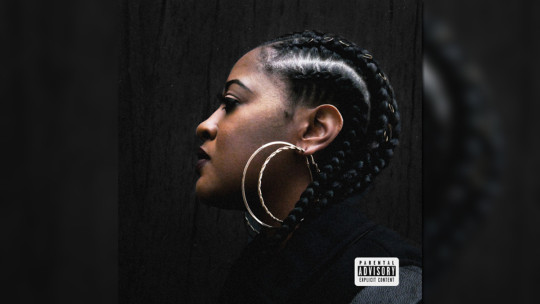
5. Rapsody - Eve Eve is a love letter, celebrating the success of the black woman. Rapsody absolutely peaks her musical versatility and rapping potential, crafting an amazing classic hip-hop album, full of creative bars, alluring samples and a very socially engaged range of topics. The record's strengths create a vivid picture of why successful women need to be appreciated and cannot be given enough credit in its impact for the female side of hip-hop culture.
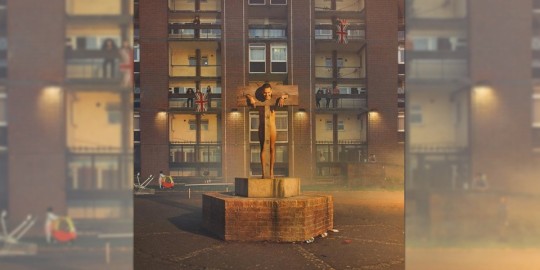
4. slowthai - Nothing Great About Britain A very heavily punk-inspired record, Tyler clashes with the UK's upper class in this project, exploring the difficulties of the everyday life in the UK's working class with cynical and sarcastic bars, full of energetic and grimey production. The topics in the cleverly titled record go into detail about the class bracket gap, widening poverty, political uncertainities and the average briton's arrogance. The album is full of witty jokes and very direct humor and thai does very well to paint the picture of a realistic Great Britain.
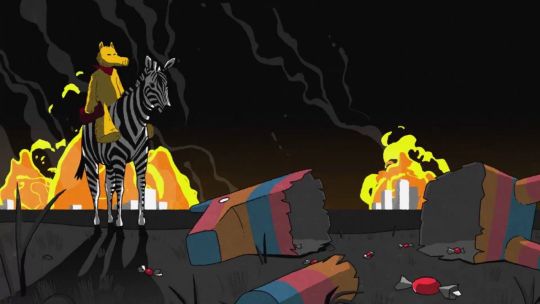
3. Freddie Gibbs & Madlib - Bandana Arguably one of the best produced albums of all time, Madlib and Gibbs really pull eachother deep in their worlds and crafted a geniusly produced project. Celebrating black freedom, the record shines on Freddie's talent for grimey and nimble rapping, with him changing cadence again and again, whilst Madlib's gift for erratic production and turning classic jazz and funk songs into off the wall earworms and samples turns this into a spiritual experience.
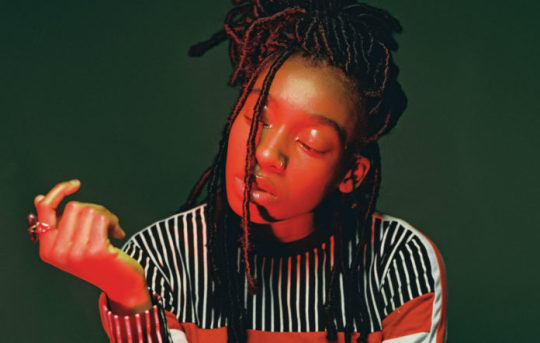
2. Little Simz - GREY AREA I'm kind of pissed off I put this at number two, just due to how good it is. Simz's coming of age album is a wicked, erratic record full of witty bars, discussion of social themes and goes between grimey, rough production and introspective, jazzy vibes, making for great entertainment. The record is a very open window to her life and the difficulties she's had as a woman and is crafted in such a masterful way, that even if you're not catching the lyrics, you'll feel the album's emotions just by listening to the production.

1. Danny Brown - uknowhatimsayin¿ This project finishes a cycle of Danny for me personally - starting off with his rockstar, crackhead phase with XXX and the consequences of his drug-induced party life in Atrocity Exhibition, his latest project is the maturest face of Danny we've ever seen. Overseen by Q-Tip as an executive producer, uknowhatimsayin¿ is very free-flowing compared to his previous records, topped off with irregular beats and unnerving samples, keeping true to Danny Brown's personality. The project is the culmination of his rap career, as he addresses the need he had to get his life together,get out of the rut he was in and grow up. He uses his cadence and snapiness to make the point of him being grown up, but still being the dude who can do what the fuck he wants.
#List#hip-hop#R&B#rap#folk#jazz#soul#top 20#albums#records#Danny Brown#Little Simz#Freddie Gibs#Madlib#Freddie Gibbs#Slowthai#Rapsody#Denzel Curry#Mereba#Anderson. Paak#Jpegmafia#FLying Lotus#Ari Lennox#YBN Cordae#KAYTRANADA#Ariana Grande#Injury Reserve#Blood Orange#Earthgang#Billy Woods
2 notes
·
View notes
Text
How the UK music scene made a statement at the end of the 2010s
The UK music scene, especially in hip-hop and R&B, was very much considered mostly a niche with its grime subgenre and electronic inspired beats for the majority of the 2010's. During the earlier part of the decade there were very few and far between albums released that would reach the worldwide mainstream and get the recognition the US scene was receiving and most of those records were mostly considered pop. The majority of listeners in the hip-hop subculture had widely accepted that the UK was doing its own thing and would produce very interesting and uncanny artists, but ultimately would not even get close to challenging its american contemporaries. This was until the latter part of the decade.

In 2016 Skepta released Konnichiwa, which although was a very grime inspired album, it also had a lot of contemporary US elements and features in it, which assisted with putting it on the map. Additionally to that, Skepta had very close connections to some of the major US-based artists and producers and for a short while all eyes were on the UK. It did take some time for the island to take off, as 2017 wasn't largery successful and there were only a few projects from that year which were even charting in the US, but everything changed in the past 2 years.
In 2018 the UK scene started blowing up, especially with its contemporary and modern take on R&B and Soul - the incredibly young Jorja Smith released Lost&Found, the very personal and soulful record, with which she opened up about the journey of self-discovery and harsh lessons in life and love she and the other people in their late teens and early twenties experience. The album has a very strong sense of identity and solidifies her place as a modern R&B talent, inspired by the jazz and soul of decades ago.
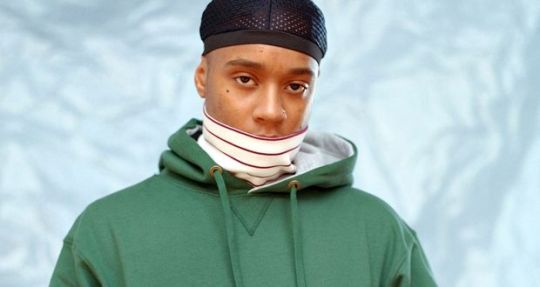
Going on from there, the next artist which made huge motions in the music scene was also heavily inspired by nostalgia, but also wore his influences from the likes of Tyler and Pharell on his sleeve, with which he crafted a masterful neo-soul project, reminisching about his lover long-forgot years ago in France. The mellow and emotional vibes of Rejjie Snow's Dear Annie get cut through with tracks which give you a reality check regarding the consequences and difficulties of living in the past and the vices we fight with, due to having to move on from these memories.
When it comes to vices, insecurity and depression, no album in 2018 hit that spot better than Devonte Hynes's, a.k.a Blood Orange, Negro Swan. Taking on a very mellow and drowned out emotionally take on alt-pop and indie R&B, the singer creates a very minimalistic and drowned vibe and environment, in which we explore the depths of his anxiety and worries as a minority in the toxic and culturally-conservative society we live in currently. The jittery and unnerving shivers in Dev's otherwise beautiful voice really recreate the emotional instability he's experiencing during these difficult times, whilst the slow and soulful production creates a sense of empathy and really underlines the strong qualities of his voice. Blood Orange didn't stop there, as Devonte released a second project less than a year later, when in the summer of 2019 Angel's Pulse hit the music platforms. Recorded much like a radio mixtape of decades past, the record has a very charming, homey feeling to it, recreating the atmosphere of him recording in his room to personally made beats. The production in this one does a complete 180, the album creates a lovely, comforting feeling of 70's and 80's soul, the record shimmering and lighting the mood up, reminding you of a slow, joyful summer day during your teenage years, all problems far away.
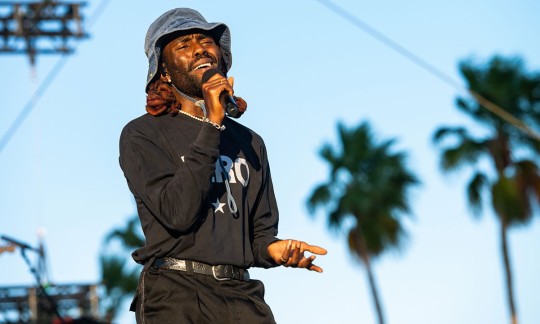
A few months earlier than Dev's album we also witnessed the release of one of the best female hip-hop albums of the decade and arguably the album of the year for 2019, with Little Simz's GREY AREA. A mixture of agressive, bassy production, combined with snappy in your face bars and punchlines and older jazz and soul samples, coupled with introspection into Simz's life and difficulties in being a woman in a man's world, the album really showcases her personality and characters. Even if you're not listening to the lyrics, which showcase the stress and insecurities she's experiencing, just listening to the production really makes you feel the emotions she's trying to share, making this an instant classic.
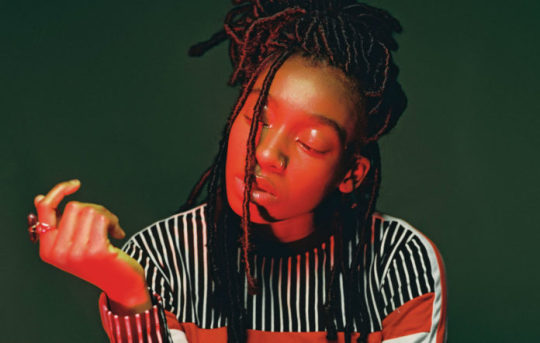
Towards the end of 2019, we witnessed the release of the album which for me really finished the narrative that the UK is a force to be reckoned with and can hold its own in creativity and experimenting in hip-hop with Slowthai's heavility political and social Nothing Great About Britain. This project very much blossoms with his punk and jungle inspirations, having a very innovative take on production, with the Northampton rapper being very cynical and humorous about all of the problems in Britain's current youth culture - the looming worry of Brexit, class brackets, rising levels of poverty and addiction issues due to the lifestyle they live. The album sounds like a journey into the head of someone suffering from ADHD, whilst he's on a coke bender - chaotic, raw, unfiltered words, creating a detailed and gruesome picture of the reality we live in.
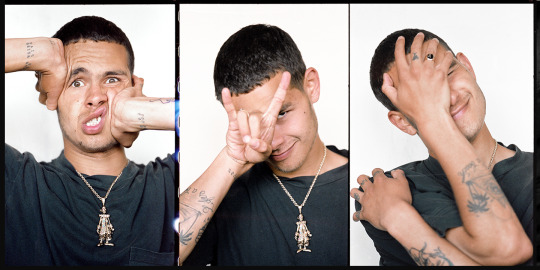
The UK didn't stop there, with artists such as IAMDDB, Charli XCX, James Blake, Stormzy and Dave releasing very notable projects during the past few years, which continued the trend of their scene turning heads. The current young generation of British artists has a sense of diversity in personality, music genre and topics they dwelve into and creates a huge sense of posivity for the music scene on the island continuing to evolve and create.
Next week I'll be releasing my top 15 albums of 2019 and will afterwards take a short writing hiatus for the upcoming holidays - I'm hoping I'll be able to discuss the beast albums of the year with anyone reading this!
#UK#Britain#music#England#Ireland#Blood Orange#Jorja Smith#Little Simz#Slowthai#social#music scene#rap#hip-hop#soul#jazz#R&B#evolution#Charli XCX.#political#decade#2010s
0 notes
Text
How Twin Fantasy channeled a generation's insecurities into an album
Twin Fantasy was originally released back in 2011, by a then 19-year old Will Toledo, using the stage name Car Seat Headrest and was uploaded on Bandcamp as one of the classic albums, defining the platform. Even back then, with its rawness, gritiness and clearly unfinished production, Toledo captured the heartache, insecurities, drug-abuse and loneliness of the 90s generation and gave them a voice through indie-rock with which they could be heard. The album was later rerecorded in 2018 and released as Twin Fantasy (Face to Face) and whilst keeping a lot of the project's original melodies and lyrics, Will rewrote entire songs, added new segments and chopped and changed production to in the end create an absolute masterpiece in the Indie-rock genre, which would capture and define our generation's wit and woes.

Twin Fantasy showcases the chaotic nature of our thoughts and the need to find symbolism in everything to previous memories, with Car Seat Headrest doing this through refencing lyrics from different songs in the album with each other - one song's chorus appearing as a bridge in another, or contiuing topics from one song only a few songs later in the album. The album really captures the lack of attention our generation experiences commonly and discusses topics including the difficulties of long distance relationship, substance abuse, the fear of death, the lack of fear of death, the fear of loneliness, thinking you'll develop a mental ilness due to stress, the refusal of having a routine life, identifying yourself within another person and the list goes on and on - the album discusses all of these topics, but at the same time at no point does it sound misguided or lacking direction, instead recreating the mind of a young person quite well.
The album channels all these topics and emotions of anxiety and insecurity through Will's experiences with a single person, as the majority of the record has only two people mentioned in the songs, the person who's singing and a "you", likely a romantic interest from the writer's point of view. Each song has a varied amount of irony, self-deprication and a healthy dose of cynicism, showcasing how impulsive a young person can be and how a negative experience can entirely flip their viewpoint.
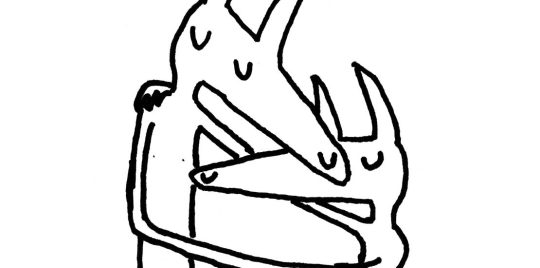
The album's genius is showcased in the ways songs are stretched to simmer and bubble until they burst and then retreat to almost acoustic-sounding compositions, with us being able to see this in the 13-minute Beach Life-In-Death multiple times, with the cut heavily focusing on self-loathing, cynicism regarding humans and pure want of another over drums and guitar riffs of constantly varying intensity and speed.
In Sober to Death we can see a very classic take on indie-rock, with the song having a build-up to each chorus, but the focus of the piece is easily the heavy theme of mental illness in a long-distance relationship and the difficulties of loving and comforting someone who's far away, with quotes such as "Good stories are bad lives" defining the heaviness of the album itself. It ends with a repetition of the lyrics "Don't worry, you and me won't be alone no more" with a guitar riff which constantly starts and stop in different points of the sentence, seemingly at random.
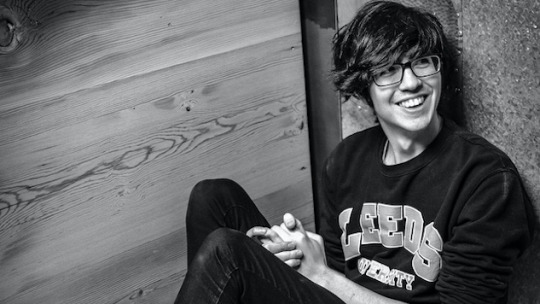
The project has ingenius moments, where Toledo will comment on the song whilst it's being played, such as in Bodys, where he gives his observations of the cut in real time - "Is it the chorus yet? No. It’s just a building of the verse, so when the chorus does come, it’ll be more rewarding". With the song Cute Thing we can see a young person asking God to give them "Frank Ocean's voice and James Brown's stage presence", so that they can become the ultimate rockstar and achieve their goals, seemingly the way we idolize certain people as children and teenagers. Its one of the most adorable moments in contemporary Indie-Rock in general, as it shows the cheesy and unselfish thoughts we have and things we do when we love someone.
The original 2011 album explored these heavy topics and in the 2018 version, the album really builds on them and heavily underlines the emotional and mental struggles we can have in life, especially whilst we're in love, due to being part of a generation which very easily develops attachment issues and uses social media, rather than human interaction, to combat loneliness and negative thoughts. Toledo's rework of the record addresses a lot of the issues it had and his evolution as a musician allows him to keep only the elements which define the record, so that we can have this generation-defining project.
#Music#Indie Rock#mental illness#generation#struggles#relationship#anxiety#self-doubt#cinicism#Will Toledo#Car Seat Headrest#teenager#Frank Ocean#acoustic#opinion#Indie#review#Twin Fantasy#Rock
0 notes
Text
Denzel Curry - Rap's very own Rock Star
When thinking about Denzel Curry, it's very easy to fall into the trap of believing that the rapper only blew up in 2018, when he released Clout Cobain and not realize he's been a pioneer in hip-hop for almost a decade now, as he's been releasing music since 2011. Curry was one of the very first artists to start creating what we know today as "SoundCloud Rap" and was and still is a very important figure in the wave, which took over hip-hop by storm in the mid 2010s.

Let's go back to 2013 - the then 18-year old South Florida rapper is part of the Florida rap group known as Raider Klan, which also put people on artists such as Xaview Wulf, Chris Travis and more loosely affiliated - Bones. The rap group was known for the exact sound which today is defined as "SoundCloud Rap" - distorted bass, ambient sounds, heavy hitting 808, screaming the lyrics. On September 3rd of the same year, Curry releases his first studio album, Nostalgic 64 and uploads it on SoundCloud, from where you can see his fanbase start to rise and form and people started relating the artist to his distinct sound, which still influences his music even to this day.
Curry is always looking to improve both as an artist and person and after the success he found in SoundCloud originally, he started honing his craft and perfecting "SoundCloud Rap". In 2015 he released the double EP 32 Zel/Planet Shrooms, which had kept the heavy hitting bass, but now had a very psychedelic-inspired production in the second part of the EP. This project was also the one which projected Denzel into meme status, as it had the track "Ultimate", which is now his "ultimate" moshpit song as well.
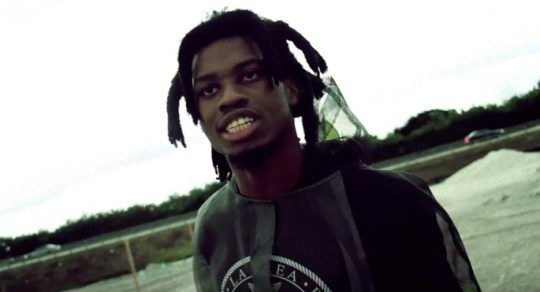
Less than a year later everything started clicking for Zel. In March 2016 he released his second studio Album "Imperial", which showed him in a light no one had seen before - a very heavily introspective album, with very little distortion in the production, a heavy melody and sample-focused sound and with Denzel not yelling in any of the songs - he kept his very distinct and heavy-hitting delivery, but would also sing in some cuts of the album and would explore topics of social inequity, his come-up in Florida, racism and his fears of death and failure. The project also featured artists such as Rick Ross and Joey Bada$$ and ultimately pushed Curry into rap's spotlight as later that year he was chosen to be part of XXL's Freshmen Class for 2016 with artists such as Lil Uzi Vert, Lil Yachty and Anderson. Paak.
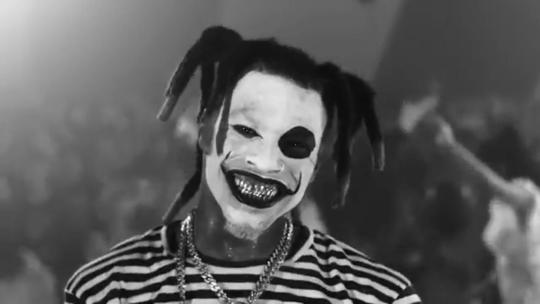
Now lets move on to 2018 - Curry had started falling out of the spotlight for a bit and whilst releasing some fantastic singles leading up to his next project and a 5-song EP on Soundcloud titled 13 which went back to his heavy roots of distorted and horrorcore-inspired production, little was known of what was happening with the Florida rapper. In mid-july, just two weeks before the release of his album, which people now knew would be titled "Taboo/TA13OO" he released the single Clout Cobain which blew up - a track focused on the reality of the musical industry, in which he raps about the exploitation of artists, which causes them to consider suicide, combined with the music video, showcasing people getting face tattoos and taking pills and lean, due to the glorification of these topics in modern rap music. Two weeks later Curry became one of the biggest artists in contemporary rap. With the release of his third studio album TA13OO, Denzel split the album into three sections - Light, Grey and Dark, which he released on three consecutive days between Wednesday and Friday, something no one had done at any point before. The album was the artistic peak of the South Florida rapper at that point, as it featured inspirations from his Raider Klan days, his newer, more melodic and synth-focused production and had a very heavy focus on the topics he was discussing, including celebrating his life and success in the Light part, whilst admitting he might he had beaten suicidal thoughts. Social commentaries on the current racism in America, police brutality, substance abuse, rape and poverty dominate the second, objective, Grey part of the record and the third Black part is the darkest and most sinister, featuring very distorted and twisted production, with topics of murder and vengeance being the focus, as it explores the rapper's darkest and most violent feelings. TA13OO included features such as Goldlink, Billie Eilish, JID, Jpegmafia and Zillakami, all included on appropriate parts of Denzel's emotional journey through the album.
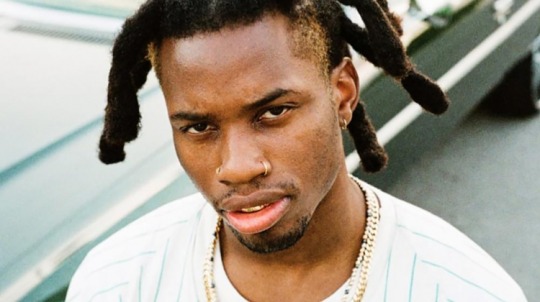
Instead of taking a break and celebrating his success, Curry went into overdrive and continued working hard in 2019 - releasing singles such as Aloha and covering Rage Against the Machine's Bulls on Parade before once again releasing a short album in May 2019. ZUU was the rapper's most dynamic and hardest-hitting project released so far, focusing on his past in Carol City, South Florida, his relationship with his father and his experiences with his friends during that time, the project kept true to its nature as the only artists featured on it were ones from the same area as Denzel, including Rick Ross, Sam Sneak and PlayThatBoiZay. It was much more of a turn-up album and wasn't as personal as his previous bodies of work, but showcased Zel's versality whilst rapping and capped of the artistic growth he had experienced and the rapper he had blossomed into.
Citing rock and punk as some of his biggest influences, Denzel's biggiest inspirations come from Outkast, 2Pac, Kendrick Lamar, Rage Against the Machine, DMX, Pantera and a handful of other acts he's discussed that have shaped him into the versatile hip-hop rock star he is today.
#Denzel Curry#Ricky#Raider Klan#Taboo#TA13OO#ZUU#Florida#music#rap#hip-hop#inspirations#Rock#Kendrick Lamar#Outkast#cover#Imperial#Soundcloud#Soundcloud Rap#Wave#XXL#XXL Freshmen
0 notes